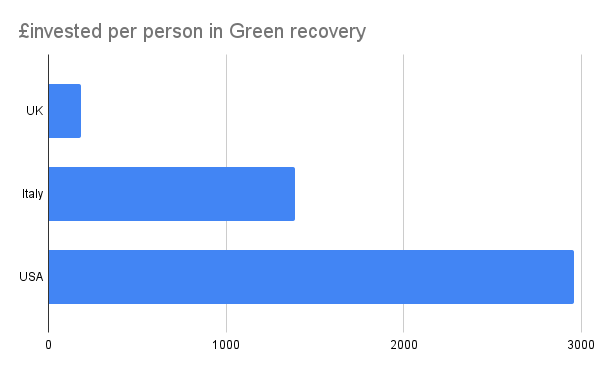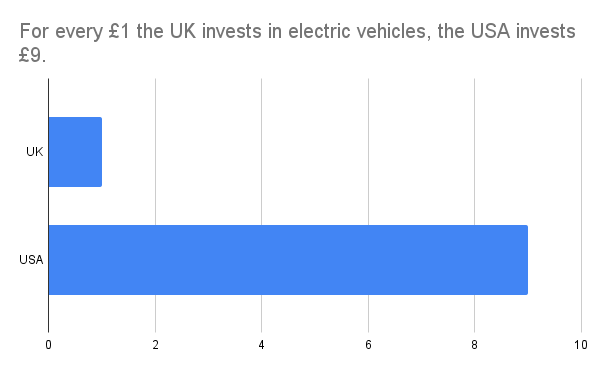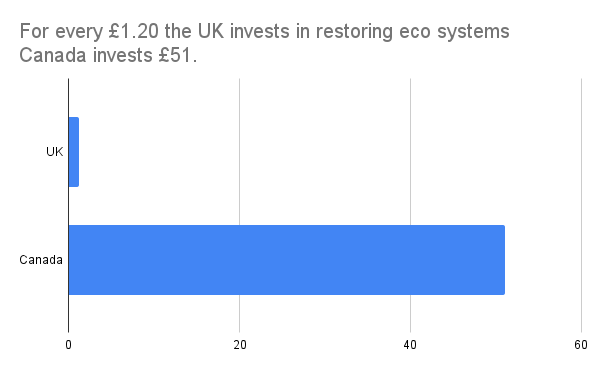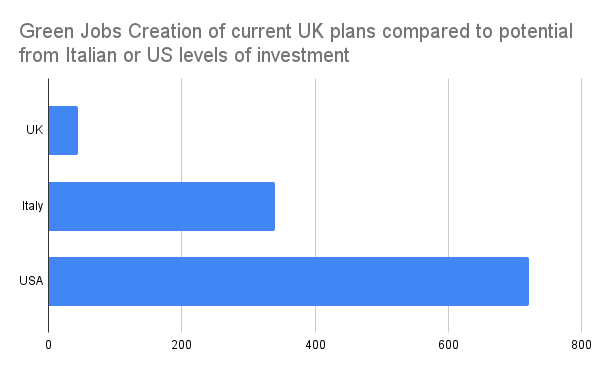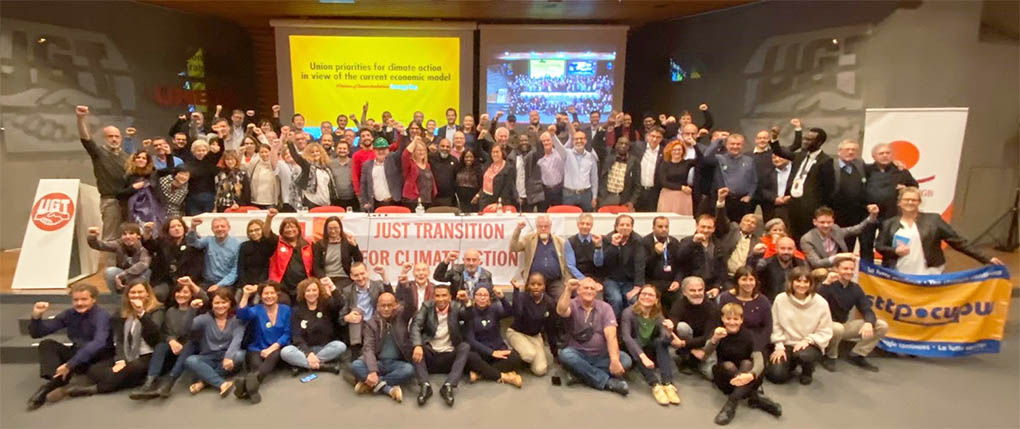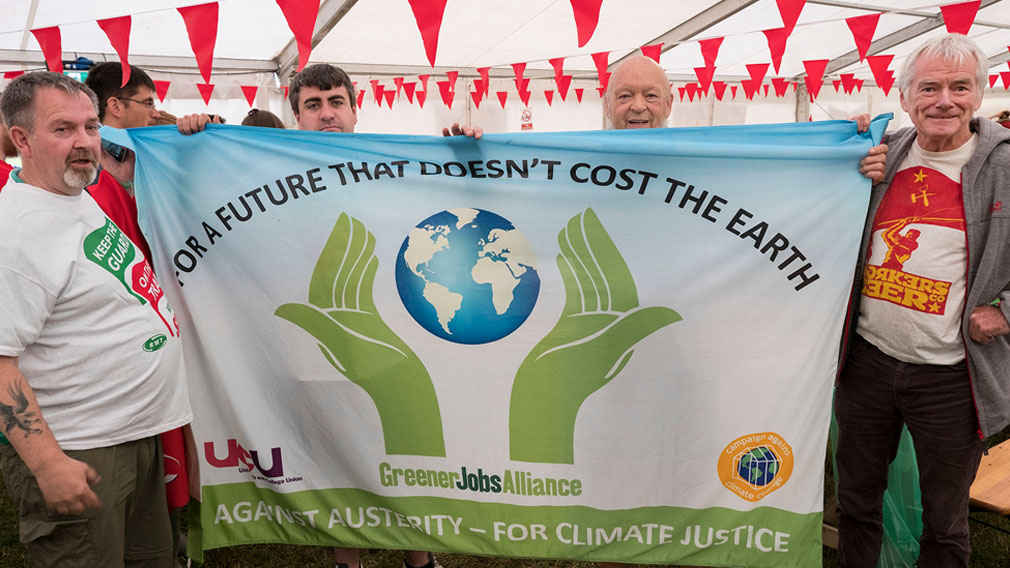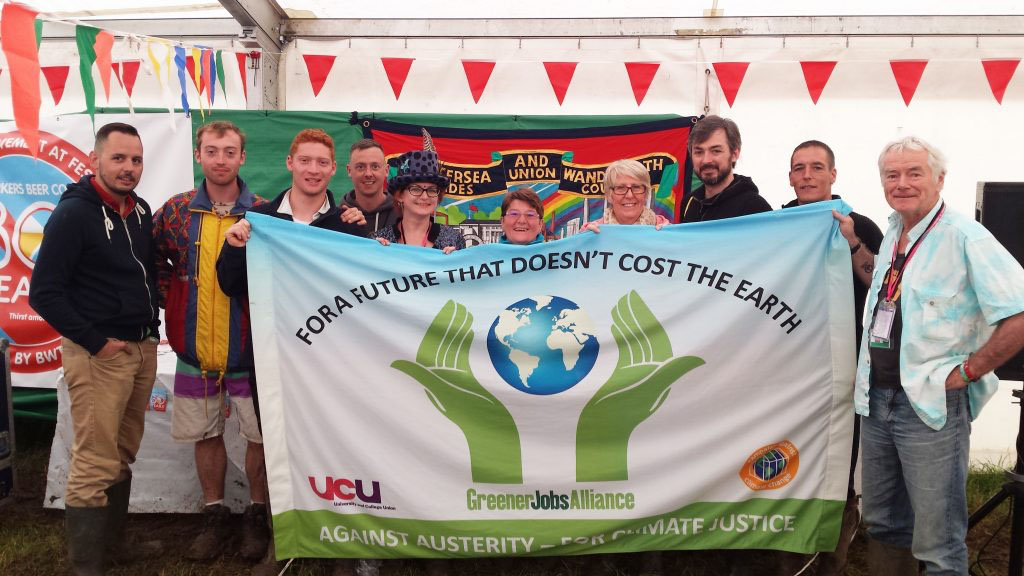Breaking News


Demanding Climate Justice
The Greener Jobs Alliance promotes skills training and job creation to grow low carbon sectors and green the whole economy.
We have produced a new leaflet promoting our free online courses, Draft Legislative Framework and the Trade Union Clean Air Network (TUCAN).
Download our new website leaflet here.
The future of Eurostar: How can we save our green link to Europe?
By Manuel Cortes
It’ll come as a surprise to no one that Covid is still causing problems for holiday-makers. The myriad of issues – whether it is the constant flicker from green to amber and back again for the countries considered safe to travel to without isolating; the so-called ‘pingdemic’ which is not a problem of the Covid track and trace app, more a problem of the high number of cases; or just the uncertainty around booking due to holiday cancellations.
All this has meant the summer recovery has been elusive.
Eurostar has had to refinance twice now, in March 2021 it borrowed £400mil and received a cash injection of £170million from its owners; and again in May 2021 to the tune of £250m. The company was one of the first to stop running its services and has had to reduce from 20 trains to Paris a day to 1 train a day for most of lockdown. Since getting the new finance deal in place in May it ramped up to 3 trains a day and hoped to have a good summer to try and recoup some of its losses.
We always thought this was a bit ambitious, but we heard that Eurostar has now frozen its plans to ramp up the services beyond the 3 trains a day and talks are taking place between the company and the recognised trade unions regarding what happens when furlough ends on 30 September.
Despite 70% of Eurostar staff being based in Britain, so far the Tory government have been hiding behind the French state ownership and refusing to commit any support to the company or the staff.
We know that the government have bailed out airlines as a result of Covid, but have been shy about helping the only green link to the European mainland, a service which takes 60,000 planes out of the sky and saves 580,000 tonnes of CO2 per year polluting the atmosphere. And all this in the run-up to the climate negotiations taking place under Britain’s Presidency of the COP26 held in Glasgow in November.
Johnson has been espousing his green credentials to the world but is prepared to let Eurostar fail, the consequences of which could be catastrophic to our emissions targets and green economy.
We can’t stand by and allow this to happen. All three of the rail unions have united together under the same banner to call for Shapps, the Transport Secretary to take charge of the situation and give our Eurostar workers some reassurance that their jobs and skills are valued. We are linking up with Friends of the Earth to make the case plainly – support Eurostar now or suffer the climate consequences.
Manuel Cortes is the General Secretary of TSSA union, he will be speaking alongside Mick Lynch (RMT GS) and Mick Whelan (Aslef GS) as well as Eurostar staff rep Sonja Van Wingerden and Friends of the Earth transport campaigner Jenny Bates.
To attend the online meeting on Wednesday 4 August, 18:30 register here https://bit.ly/Eurostar4August
Three big environmental reports released in the same week
Like buses, environmental reports never turn up on their own. In this week, when the heart of the developed world has seen a climate-induced catastrophe in the flooding of towns in Germany and the Benelux countries, it’s timely that no less than three important reports on Green issues have been published in the UK.
First is the green jobs task force report to Government, Industry and the Skills Sector. The GJTF, comprising members from industry, academia, unions and the education and skills sector, was convened to advise government on the skills and training requirements for the Green workforce of the future. Of course, as a government-sponsored report, we should be concerned but not surprised at rhetoric about ensuring an ‘employer-led skills system’ and ‘ongoing reforms’ [sic] to ‘meet employers needs’. Even less reassuringly, the Introduction notes ‘the potential economic opportunities of the transition to a low carbon economy’ which gives a flavour of where the report is coming from ideologically and what its priorities are.
Skills and education for future Green employment are particularly close to the collective heart of the Greener Jobs Alliance, and consequently, we plan to devote a special edition of our newsletter to bringing together the views of our members on various aspects of the report.
Those of us who have been employed in the transport sector are also interested to see the appearance of decarbonising transport – a better greener britain, a report produced by the Department for Transport. With the climate impact of transport, particularly cars and aeroplanes, extremely high profile in climate debates, it is clear that radical action is needed to transform how we travel (and how much). Some GJA members are reading this report very closely, in conjunction with colleagues from trade unions and NGOs, to produce appropriate responses to the report’s proposals, including making submissions to the Jet Zero consultation that the report has launched regarding the future of aviation.
Finally, it was very welcome to hear Caroline Lucas on the Today programme on 14th July to comment on the launch of the transport report by way of counterbalance to Grant Shapps. In her contribution, Caroline referenced a new report, also published this week, by our colleagues in the Institute for Public Policy Research. The report, fairness and opportunity: a people powered plan for the green transition, was produced for the Environmental Justice Commission, and sets out a vision for the future of the UK, including the shifts needed to address the climate and nature crises, and making the case for a ‘new social contract…to deliver a transition that is both rapid and fair’.
All in all, sufficient reading for anyone wishing to spend the currently hot summer anywhere other than on the crowded beaches that ‘freedom day’ is likely to bring!
G7: The World is watching
The countries meeting at the G7 in Cornwall between June 11th -13th comprise just 10% of the world’s population but hold 62% of the world’s wealth and spend more on their militaries than the rest of the world put together.
They are responsible for
- the lions share of historical carbon emissions
- and are still investing over $100 billion a year into coal, gas and oil.
If the world is to avoid catastrophic climate breakdown the G7 meeting needs not only to commit to
- single mindedly going flat out for domestic transition to sustainability, but also to
- stop financing and subsidising fossil fuels and
- pay its dues to the international community; including the $100 billion a year pledged at Copenhagen for the developing world to cope both with immediate climate impacts and to develop without fossil fuels and
- seek global co-operation not conflict.
Claims to “global leadership” will be judged the world over against these benchmarks.
We call on the G7 to meet them.”
Initial signatories include:
Kevin Courtney and Mary Bousted (Joint General Secretaries National Education Union)
Mark Serwotka (General Secretary Public and Commercial Services Union)
Jo Grady (General Secretary University and College Union)
Manuel Cortes (General Secretary Transport Salaried Staffs Association)
Sarah Wooley (Bakers Food and Allied Workers Union)
Ellen Fearon (President National Union of Students, Union of Students in Ireland)
Shami Chakrabarti (House of Lords)
Bell Ribiero Addy MP,
Richard Burgon MP
Diane Abbott MP
Caroline Lucas MP
Claudia Webbe MP
Hugh Knowles and Miriam Turner (Co Directors Friends of the Earth)
Richard Dixon (Director Friends of the Earth Scotland)
Tamar Singer (UK Student Climate Network)
Lily Henderson (Fridays for Future Scotland)
Robin McAlpine (Common Weal)
Meg Baker (Students Organising for Sustainability UK),
Suzanne Jeffery (Chair Campaign Against Climate Change)
Tahir Latif (Secretary Greener Jobs Alliance).
TUC Green Recovery League Table. UK facing relegation?
The TUC study of the green recovery plans of the G7 countries puts the UK at sixth out of seven, behind the USA, Germany, France, Canada and Italy. Only Japan does worse. The gap is embarrassingly large.
The scale of the current “ten point plan” would have to be multiplied five times to match Canada, eight times to match Italy, sixteen times to match the US.
Current UK plans will create just 44,000 green jobs. Investment on an Italian model would create 340,000, on the US model, 721,000.
The scale of the current “ten point plan” would have to be multiplied five times to match Canada, eight times to match Italy, sixteen times to match the US.
Boris Johnson excels at throwing red, white and blue dust in people’s eyes. But talk of the UK leading the world doesn’t stand up to scrutiny. The rest of the world will perceive the UK government as all mouth and no trousers unless it ups its game qualitatively between now and November. Opposition Parties have been given useful ammunition here in pushing the government to close the gap between rhetoric and delivery.
The full report can be seen here.
Ranking G7 Green Recovery Plans and Jobs | TUC
This report shows how the UK is lagging behind its G7 peers, and the potential to do much more to expand green jobs and accelerate climate action. The TUC’s ranking of all G7 countries’ green recovery and jobs investments shows that the UK comes sixth.
Hazards Campaign
Thursday June 17th – 6-7.30pm
Clean Air Day has been held every year since 2017 and is coordinated by Global Action Plan. The need for action is clear. From the recent verdict at nine-year-old Ella Kissi-Debra’s inquest making a direct link between the air pollution she endured and her untimely death to the recent study published by University College London stating that globally we are experiencing at least 8.7 million deaths related to air pollution annually.
On Clean Air Day 2021 join the Hazards Campaign panel of experts from across the UK, to discuss what is happening in their country and what TUCAN should be doing to drive forward the air quality agenda throughout UK workplaces.
Links to more information:
- https://www.greenerjobsalliance.co.uk/news/
- Greener workplaces for a just transition – a Wales TUC toolkit for trade unionists | TUC
- Courses – Greener Jobs Alliance
- 40794 The Clean Air Plan for Wales (gov.wales)
https://www.greenerjobsalliance.co.uk/air-pollution/ - Toxic use Reduction in the Scottish context
If you would like to take part in the air quality monitoring of your workplace, please contact hilda@gmhazards.org.uk
STOP DEADLY EXPOSURES @WORK TODAY!
To stop preventable work-related deaths, remove exposure to hazardous substances @work Worldwide: 160 million occupational diseases every year: Over 1 million deaths.
Read the Greener Manchester Hazards Centre leaflet here:
https://gmhazards.org.uk/wp-content/uploads/2019/06/stop-deadly-exposure-1.pdf
TUCAN Air Pollution: all in a days work
Download the document here:
https://drive.google.com/file/d/1KyUwX6_vO_xgNCpBtuhkIbx1BoWH2cNY/view?usp=sharing
With Banners Held High 2021 | main event Saturday 15 May | 11am | online
The past we inherit – the green future we build
This year’s With Banners Held High will be held virtually through a Facebook Live event. The theme this year the past we inherit – a green future we build has never been more important with COP26 being hosted here in the UK.
We are really proud to host so many excellent speakers. Leaders in the trade union movement who will speak about the climate emergency from their trade union members experience. They know why we must act now to build that green future and why we must campaign for a Just Transition.
You can watch the live event on 15 May, 11am.
We also have a fantastic programme of fringe event workshops.
Register in advance for the festival fringe workshops.
Saturday 8 May, 11.00am-1.00pm Educating for the climate emergency
Schools and colleges play an essential role in the climate emergency educating the next generation and laying the foundations for our young people’s career and life choices. In this workshop there will be a panel of four teachers, leading climate education in their schools and in wider networks of schools across the region.
Tuesday 11 May 7.00- 8.30pm Youth voice – speaking up for the planet
Across the region young people have been calling for action on the climate. Greta Thunberg has spoken for the next generations. We need to do our homework, listen to the science and take action to reduce greenhouse gas emissions.
In this workshop we will hear from a range of young people from right across the region who need us to listen. Their future is in our hands.
Wednesday 12 May 7.30-9.00pm One million climate jobs
Join this workshop to discuss the jobs that are needed to tackle the environmental crisis. Whether it’s retrofitting homes or greener transport, we need urgent investment to tackle climate change. Suzanne Jeffery from the Campaign against Climate Change will speak about the new edition of One Million Climate Jobs, looking in detail at homes and transport and where investment and jobs are really needed.
Friday 14 May 7.00-8.30pm The right to protest – hosted by Orgreave Truth and Justice Campaign
Join an exciting panel of speakers on this important issue:
- Chair: Chris Peace: Orgreave Truth and Justice Campaign activist
- Shami Chakrabarti: Human rights activist, lawyer and Labour Peer
- Kate Flannery: Secretary of the Orgreave Truth and Justice Campaign
- Abdullah Okud: Co-founder of Sheffield Black Lives Matter
- Declan Owens: Campaigning lawyer and joint chair of Haldane Society of Socialist Lawyers
- Rosa Tully: Socialist, feminist and climate justice activist
- Music by Sam Browse, folk musician and political activist
Tuesday 18 May 7.30-9.00pm A just transition – what does it mean for you?
Join Unite’s Andy Pearson for this workshop to find out what just transition means for you.
Wednesday 19 May 8.00-9.00pm Green ban: red union – winning our climate demands
From 1971-75, the BLF in Australia placed Green Bans (orders not to work) on sites of ecological, climate or conservation interest, to stop big developers riding roughshod over local communities.
Today, the CFMEU union is reviving green bans to defend communities and climate. Join our session to hear how they have overcome harsh anti-union laws to centre worker issues in the fight for climate justice.
Speakers:
- Darren Greenfield, state secretary, CFMEU New South Wales
- Historian of the Green Bans 1971-75
- UK trade union speaker
Saturday 22 May 11.00am-1.00pm Future Energy Needs – is hydrogen the answer?
Hydrogen is being talked up by government as a centrepiece of a low carbon economy, not least as a replacement for natural gas in our homes. How realistic is this scenario, and what are the alternatives? We explore the potential and limitations of hydrogen technologies, with Simon Pirani, energy researcher and author of Burning Up: A Global History of Fossil Fuel Consumption and members of Leeds TUC’s environment sub-committee.
Saturday 22 May 3.00-4.00pm Winning Better Buses for Yorkshire
We Own It host this workshop which will look at how public transport really could make that green future more than an ambition.
Tuesday 25 May 7.30pm-9.00pm Organising for the Climate Emergency – from the Workplace to COP26
We know that we need to organise to get businesses, employers and governments to act and our last workshop focuses on that.
We have a fantastic line-up for this workshop: a GMB shop steward will describe how he has brought in workplace changes, Sarah Woolley, general secretary of the bakers union, BFAWU will describe how they have been making sustainability a strand throughout the union and with other unions. And Sam Mason, policy officer of PCS will show how it has been possible to use workers concern for the environment as a a key driver of change.
We will consider how in the year of COP26 we can organise to make trade union voices heard, from the workplace to intergovernmental panels as they prepare to meet in Glasgow.
Solidarity Greetings
Organisers of With Banners Held High would welcome greetings from branches who would have attended with their banners.
Please send photos of your banners with a message and they will post on their Facebook page and may also include them in the online procession.
Email these by 8 May, but please send earlier if you can.
A few NUM banners will be available to see in person in the Burton Street windows of Wakefield MDC building, Wakefield One, from 7 May.
How many green jobs could there be in your constituency?
Today, Tuesday April 20th, Green New Deal UK are launching an App so you can check how many green jobs could be created in your constituency to aid economic recovery and decarbonise our society; as the focus for a campaign to invest to bring them about. You can check the app here.
The government axing the Green Homes Fund comes on the back of a sharp decline in green jobs in the UK economy in the last seven years; with 30,000 fewer than in 2014 when David Cameron moved to “cut the green crap.” We can’t afford for this to continue.
Follow the link here to find out what you can do to add your voice: Green Jobs for All Local data launch supporters’ share pack
International action for public transport
This initiative brings together Mayors of the 100 mega cities most committed to climate action, the International Transport Workers Federation and local commuters in a global push to defend public transport which has been hard hit by the pandemic but is essential to sustainable transport systems. Please have your say and pass it on widely for others to have theirs.
Today, we’re launching a new global effort with the International Transport Workers’ Federation to secure a green and just COVID-19 recovery by calling for bold investments in public transport systems worldwide.
We want to know – what does public transport mean to you?
Share your story and join us in calling for public transport systems that truly work for all city residents.
Our newly-released research – “The Future of Public Transport” – shows that investing in public transport and the workers who have kept our cities running throughout the COVID-19 pandemic would have far-reaching impacts for our communities, including:
- Creating 4.6 million new jobs by 2030 across 100 cities
- Cutting emissions from urban transport by more than half by 2030, compared to business as usual
- Reducing air pollution from transport by as much as 45% in some cities
- Protecting workers in lower-income and service sector jobs who rely on public transport for their livelihoods
- Connecting city residents to work, education, leisure and each other
Led by mayors, workers, union leaders and commuters in cities around the world, this campaign underscores what has long been true: public transport systems are a critical part of the fabric of our cities.
We want to know – what does public transport mean to you?
Share your story and join us in calling for public transport systems that truly work for all city residents.
 An emergency plan on green jobs for young people
An emergency plan on green jobs for young people
GJA supported the research into this new report from one of our alliance partners. Friends of the Earth commissioned Transition Economics to show why the Government needs to prioritise green apprenticeships as part of the economic recovery. This report will be essential reading for anyone with an interest in skills policy.
An emergency plan on green jobs for young people | Policy and insight (FOE)
Environmental Audit Committee Green Jobs Inquiry
GJA has responded to the Environmental Audit Committee which is conducting an inquiry into Green Jobs. Our response can be found here.
TRADE UNION CLEAN AIR NETWORK (TUCAN)
No embargo
TUCAN COMMENT FOLLOWING THE CONCLUSION OF THE INQUEST INTO THE TRAGIC DEATH OF ELLA KISSI-DEBRAH
Our thoughts are with Ella’s family and friends at the conclusion of this inquest’s ground breaking verdict and our congratulations go to Ella’s mother, Rosamund, for her determination with her prolonged campaign for the truth to be heard.
Commenting on the verdict, Graham Petersen, TUCAN, said: “The result of the inquest shows in an all too tragic way what we and many others have been saying for far too many years – the polluted air we have to breathe can and does kill and government must act to ensure the pollutants are reduced and removed. TUCAN says the Government must also focus on those employers and industries whose operations contribute to the polluted air of local communities and their own workforce. Key to all this are our trade unions and their representatives who are in an informed position to discuss and help implement positive actions at work. However, we feel the government must take the lead in this firstly by acknowledging the extent of the problem and then taking steps to ensure employers and the authorities act quickly and decisively to reduce the potential for ill health and further deaths.”
The ways in which air pollution can be an issue at your job have not been well discussed and part of TUCAN’s mission is to broaden that understanding. Whether someone is just commuting, working in an office or shop, working on a construction project, driving to and from work or on the road all day they are all going to be exposed to harmful emissions, notably nitrogen oxide and fine particulate matter, and that exposure does not have to be high for it to affect our health.
 Trade Union Clean Air Network:
Trade Union Clean Air Network:
https://www.greenerjobsalliance.co.uk/air-pollution/
TUCAN Charter:
https://www.greenerjobsalliance.co.uk/wp-content/uploads/2019/02/GJA-TU-Clean-Air-Charter-EMAIL.pdf
Hazards magazine on clearing the air:
https://www.hazards.org/chemicals/diediesel.htm
Air pollution—a wicked problem: Professor Stephen Holgate, Royal College of Physicians Special Advisor on air quality and UKRI Clean Air Champion, University of Southampton.
https://www.bmj.com/content/357/bmj.j2814
Making the connection between green skills and jobs
GJA has written to the Government highlighting the lack of a coherent plan on green jobs and skills.
GJA Statement on Green Jobs and Skills
The GJA has responded to the recent Government announcement on green jobs and skills with this statement. While welcoming the decision to set up the Green Jobs Taskforce we set out some areas of concern and the further actions that need to be taken.
Offshore oil and gas workers report
Greenpeace, Friends of the Earth Scotland and Platform have published a report this week entitled ‘Offshore: Oil and Gas workers views on industry conditions and the energy transition’
Gabrielle Jeliazkov, Just Transition Lead Campaigner for Platform, said:
These workers are the backbone of our energy sector but have faced years of job insecurity amid volatile oil markets, lax regulation and now the global pandemic.
If the UK government is serious about levelling up and transitioning to renewable energy, workers’ voices must be at the centre of that transition process. The government must ensure oil and gas workers are supported into secure and sustainable jobs.
The report can be found here
https://www.greenpeace.org.uk/
The RMT press release can be found here
https://www.rmt.org.uk/news/
Opportunity for oil workers: share your views on greener jobs
A new survey has been launched by Platform and Friends of the Earth Scotland to hear from workers in the oil and gas industry and supply chain about how COVID-19 and the oil price crash has impacted their working life. Already hundreds of responses have been received – can you help to distribute it further?
The survey is directed at people employed in the oil and gas industry and in associated industries, such as aviation, transport, car manufacturing and service industries, as well as people in public bodies, unions or community organisations who regularly interact with oil and gas workers.
The survey’s objective is two-fold. The first is to gather views on the effect of the oil crisis and COVID-19 on job security and work conditions for those in the industry. The second is to understand how the campaign for a ‘Just Transition’ is perceived by oil and gas workers and what kinds of demands workers would like to see addressed by a transition to a net-zero or zero carbon economy.
Initial responses indicate that there is a significant appetite among workers to take up jobs in new growing sectors like offshore and onshore wind, solar and oil rig decommissioning. However the early responses also show that the language of ‘Just Transition’ is totally unfamiliar to the workforce revealing that campaigns highlighting the potential opportunity and support needed to realise a green economy are not cutting through.
The information collected by the survey will inform campaigning decisions by environmental and labour organisations related to a ‘Just Transition’ and can help to ensure that workers’ voices are at the forefront of the discussion about a just recovery post-COVID-19. An energy transition must centre affected workers and the COVID-19 era demands a focus on job retention and security.
Do you have contacts working within the oil and gas sector, high-carbon industries, or public bodies, unions and community groups close to those employed in these sectors? If so, share this link with them – and ask them to pass it on! Full survey results and analysis coming soon.
The GJA has written to Gavin Williamson (Dept for Education) and Alok Sharma (BEIS) to seek information on how they intend to respond to the latest Committee on Climate Change Report. Both ministers are being asked to ensure that green skills are mainstreamed into their departmental strategies. The GJA has been calling for this over a decade and we now want to see clear evidence that this is being adopted in a way that will drive the delivery of a net-zero carbon economy.
Letter to Alok Sharma – Training and skills: Implementing the Committee on Climate Change Report
Climate and Employment Proof Our Work
Today is the ITUC Climate and Employment Proof Our Work day of action. (#CEPOW)
The Greener Jobs Alliance supports this as part of the campaigns to Build Back Better and a Green New Deal.
https://www.ituc-csi.org/cepow
We are also pleased to have contributed to The Future We Choose wall chart launched as part of the CPEOW by the University and College Union (UCU).
https://www.ucu.org.uk/
Don’t lose sight of the climate emergency
Labour’s new leader, Keir Starmer MP, has promised to ‘put the Green New Deal at the heart of everything we do.’ Pledging support for a Clean Air Act, he said ‘no issue is more important to our future than the climate emergency.
Ed Miliband returns to frontline politics as shadow Business, Energy and Industrial Secretary. Back in 2008, when Ed Miliband was Secretary of State for Energy & Climate Change, he made a pledge to support the legal duty to appoint Green Reps. This remains a central demand of the GJA and trades unions if we are going to ensure the democratic delivery of a zero carbon economy. We also look forward to working with Rebecca Long-Bailey MP as Shadow Education Minister, to push forward proposals for climate awareness and skills to be at the centre of curriculum development.
With the coronavirus outbreak bringing economies to a virtual standstill, global carbon dioxide emissions are expected to fall by as much as 5% this year – the largest fall since the 2008 financial crisis.
But the relief of clear skies and cleaner air will be short-lived if we go back to ‘business as usual’. Government stimulus packages – including as we report below, demands from the aviation industry for massive government aid – will define whether this emergency merely delays action, or is seized as an opportunity to make progress on tackling the climate emergency.
And as we reveal below, ten years of austerity, much of it under the stewardship of former chancellorship George Osborne, have weakened society’s capability to respond to risks that the government has been well aware of – pandemics and the global climate emergency.
UN postpones Glasgow climate summit
The United Nations has postponed the climate talks due to be held in Glasgow later this year, as governments around the world struggle to halt the spread of coronavirus. The UN conference was due to attract over 26,000 delegates.
In response, Bert De Wel, the ITUC’s climate coordinator, said, ‘Today all our attention goes to dealing with the COVID-19 crisis, but the climate emergency has not disappeared. Economic redress measures will need to be checked for their climate impact. National Climate plans (NDCs) have to be prepared and scaled up with Just Transition measures.’
The ITUC is due to send out materials on its global campaign to Climate and Employment Proof our Workplaces, set for 24 June 2020. Just a few short weeks ago, the world’s headlines were full of images of Australia burning, the UK under water, of thousands displaced by floods and landslides in Indonesia.
5% fall in CO2 emissions: https://uk.reuters.com/article/uk-health-coronavirus-emissions/coronavirus-could-trigger-biggest-fall-in-carbon-emissions-since-world-war-two-idUKKBN21L0KC
ITUC Climate and Employment Proof our Work
https://www.ituc-csi.org/cepow
No free bail out for aviation industry
A group of 26 civil society groups have written to the chancellor, Rishi Sunak, demanding ‘stringent conditions’ on any rescue package for the aviation industry, including not just measures to help workers but strict targets on greenhouse gas emissions, in line with the Paris agreement. True, as the global health crisis unfolds, airlines have been hit hard. But airlines like Virgin Atlantic are now lobbying intensively for a government bailout.
Meanwhile, unions such as Unite and the airline pilots’ union, Balpa, are negotiating hard to protect their members jobs and incomes.
Unite has been in numerous negotiations with airlines, airports and companies in their supply chain about unpaid leave, temporary lay-offs and redundancies. Unite is urging the government to adopt an action plan to help ensure that the whole industry can survive the current crisis:
- The government to make contributions to cover workers’ pay to ensure that the UK’s aviation infrastructure remains intact; and taking a financial stake in airlines and airports to help ensure their survival
- Immediate provision for the extension of loans to airlines and airports and other aviation companies to assist in the retention of staff and the preservation of routes
- A delay in the payment of taxes and duties that airlines are obliged to pay.
- Government support ‘tied to long-term environmental commitments as part of an integrated sustainable transport network.’
‘Public money must be used to address social and environmental priorities, as well as economic needs,’ the campaigners argued in a letter to the Chancellor. Any support packages must set three key conditions:
- protect workers so there are no pay cuts or lay-offs due to the Covid-19 crisis.
- protect the climate – the airlines need to start cutting their emissions to meet the globally agreed climate targets, without relying on offsets, which are unreliable.
- protect public money, by giving the government a stake in any companies it supports, so it can set the industry on a more sustainable path.
Unite briefing:
Greenpeace briefing and letter:
Government austerity weakened society’s ability to respond to risks
The government was aware as recently as 2017 that a pandemic posed the highest risk impact to society – as the official graphic below shows. According to the government’s National Risk Measure of Civil Emergencies (2017), a pandemic was judged to have a ‘level 5’ impact on society, and a 4 in 5 chance of occurring within five years. Yet the cabinet Office report bizarrely concluded: ‘The likelihood of an emerging infectious disease spreading within the UK is assessed to be lower than that of a flu pandemic.’
The 2017 report also acknowledged that the climate crisis presented the second highest set of risks to society, including river and coastal flooding, power black-outs and severe cold and snow. These high level risks were judged to presenting a three- or four-in-five chance of occurring. ‘Heavy rainfall and flooding, such as the UK saw over the winter of 2015/16, illustrate the costs and disruption that can be caused by extreme weather,’ the report says.
The Government produces the National Risk Register of Civil Emergencies (NRR) ‘to give information to the public about these risks, alongside advice and guidance on how you can prepare for them.’
Yet ten years of austerity have left public and emergency services under-funded, often stretched to the limit, with cuts to key budgets protecting the environment and supporting renewable energy and home insulation. These actions have weakened our capability to respond to both the recognised high level risks to society. So much is evident with the Covid-19 crisis, but it was also there in the river and coastal flooding and power cuts that overwhelmed communities at the turn of the year.
And what was the government’s official message to the public in 2017? Caroline Nokes MP,
Minister for Government Resilience and Efficiency, offered this reassurance…
‘Resilience does not come easily but the UK has long experience. Call it what you will, but whether through the fabled ‘stiff upper lip’, ‘Blitz spirit’ or just a stubborn determination, our resilience can be seen at the forefront of our handling of emergencies.’
The incoming Labour leader pledged that ‘no issue is more important to our future than the climate emergency.’ Labour must demand a new national risk assessment of the climate crisis, and end austerity to generate the resources to tackle it.
Matrix A – Hazards, diseases, accidents and societal risks
 Source: National Risk Measure of Civil Emergencies
Source: National Risk Measure of Civil Emergencies
Setting our priorities for 2020 – Report of the GJA AGM
35 people attended our AGM on Monday, February 24 th 2020. A wide range of trades unions and environment groups were represented. The meeting combined looking back over the successes of 2019 and planning our activities for the year ahead. A new steering group was appointed and the organisation recommitted to our central objective of promoting the positive benefits of bringing together trade unions, student organisations and environmental groups.
The 2020 work plan that was agreed identified 3 main priorities.
- Support Green New Deal (GND) bargaining by working with unions to provide resources to incorporate in local regional and national bargaining
- Build the Trade Union Clean Air Network (TUCAN) campaign and continue to raise awareness of the link between air pollution and occupational health
- Identify opportunities for regional projects that support cross-union activity around green skills and related just transition work
Read the report here.
Breaking News from the Chile/Madrid Climate Change Conference
Graham Petersen is attending the UN COP 25 talks on behalf of the University and College Union (UCU) and Greener Jobs Alliance. Here’s his report:
Around 150 trade unionists are represented under the umbrella of the International Trade Union Confederation (ITUC). This is only a small proportion of the 25,000 people present but we have been trying to make our voices heard.
 Solidarity with the people of Chile – The ITUC has made clear our opposition to Chile retaining the Presidency of COP because of the state of emergency and moving the venue from Santiago to Madrid. Workers have been shot, raped and blinded by the security forces. At the ITUC event organised by the Just Transition Centre, we heard from Tamara Munoz, International Secretary of CUT, the workers federation in Chile, who had herself, been imprisoned. She spoke about how the neo-liberal government continues to suppress human rights.
Solidarity with the people of Chile – The ITUC has made clear our opposition to Chile retaining the Presidency of COP because of the state of emergency and moving the venue from Santiago to Madrid. Workers have been shot, raped and blinded by the security forces. At the ITUC event organised by the Just Transition Centre, we heard from Tamara Munoz, International Secretary of CUT, the workers federation in Chile, who had herself, been imprisoned. She spoke about how the neo-liberal government continues to suppress human rights.
State of play in the negotiations – The COP process is an exercise in horse trading. One of the key elements of the Paris Agreement up for discussion is Article 6 which deals with carbon markets and related market mechanisms. It is a complex area and further details can be found here https://www.carbonbrief.org/in-depth-q-and-a-how-article-6-carbon-markets-could-make-or-break-the-paris-agreement
One of the main concerns is how ‘carbon offsetting’ could be used to undermine human rights. Offsetting allows countries or companies to ‘reduce’ their own emissions by buying offsets from projects built elsewhere. New draft rules released on Saturday removed the requirement for parties to “respect, promote and consider their respective obligations on human rights”, replacing this language with a much weaker placeholder text. The ITUC position and that of others is that this must be resisted.
Just Transition back in the frame – The success of getting this social justice principle into the Paris Agreement continues to be a fault line for measures adopted at this conference. A crucial area is the Nationally Determined Contributions (NDCs) that each country must prepare to show compliance with limiting global temperature rise to 1.5 degrees. Unions are insisting that they are at the table with government to negotiate NDCs with just transition in national plans.
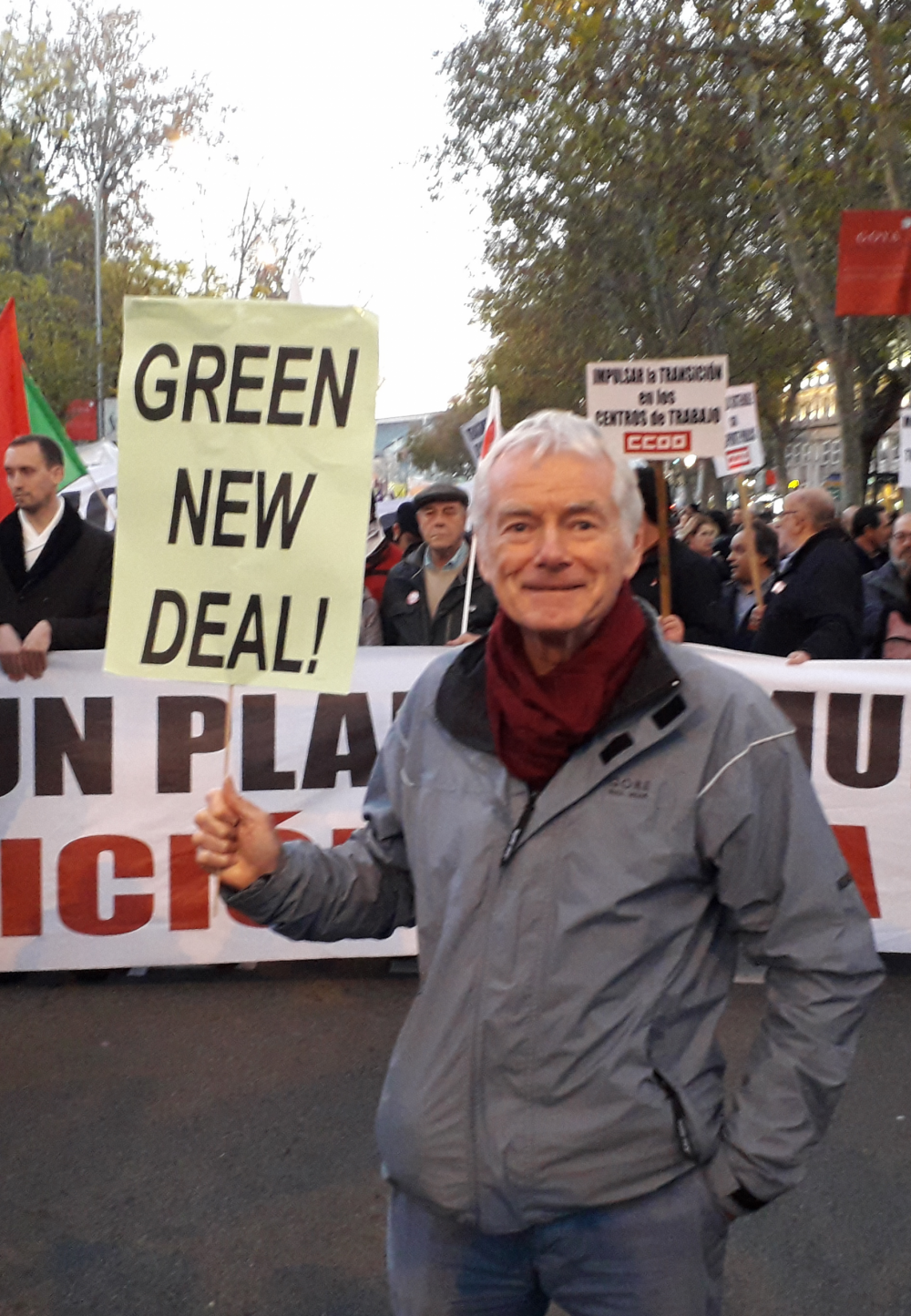 Unions on the March – There was a strong contingent of Spanish workers on the demonstration in the centre of Madrid on Friday. With calls for a Green New Deal prominent in the demands attended by Greta Thunberg and hundreds of thousands of climate activists.
Unions on the March – There was a strong contingent of Spanish workers on the demonstration in the centre of Madrid on Friday. With calls for a Green New Deal prominent in the demands attended by Greta Thunberg and hundreds of thousands of climate activists.
This was followed by the Strategy Day at the UGT National Centre where there was a discussion of best practice. The importance of union training programmes reflecting the climate emergency was emphasised. Examples of union engagement were highlighted across the regions of the Americas, Africa, Europe, and Asia and the Pacific. The meeting was addressed by Asad Rehman, the Executive Director of War on Want, who highlighted the history of working class solidarity in support of social justice around the world.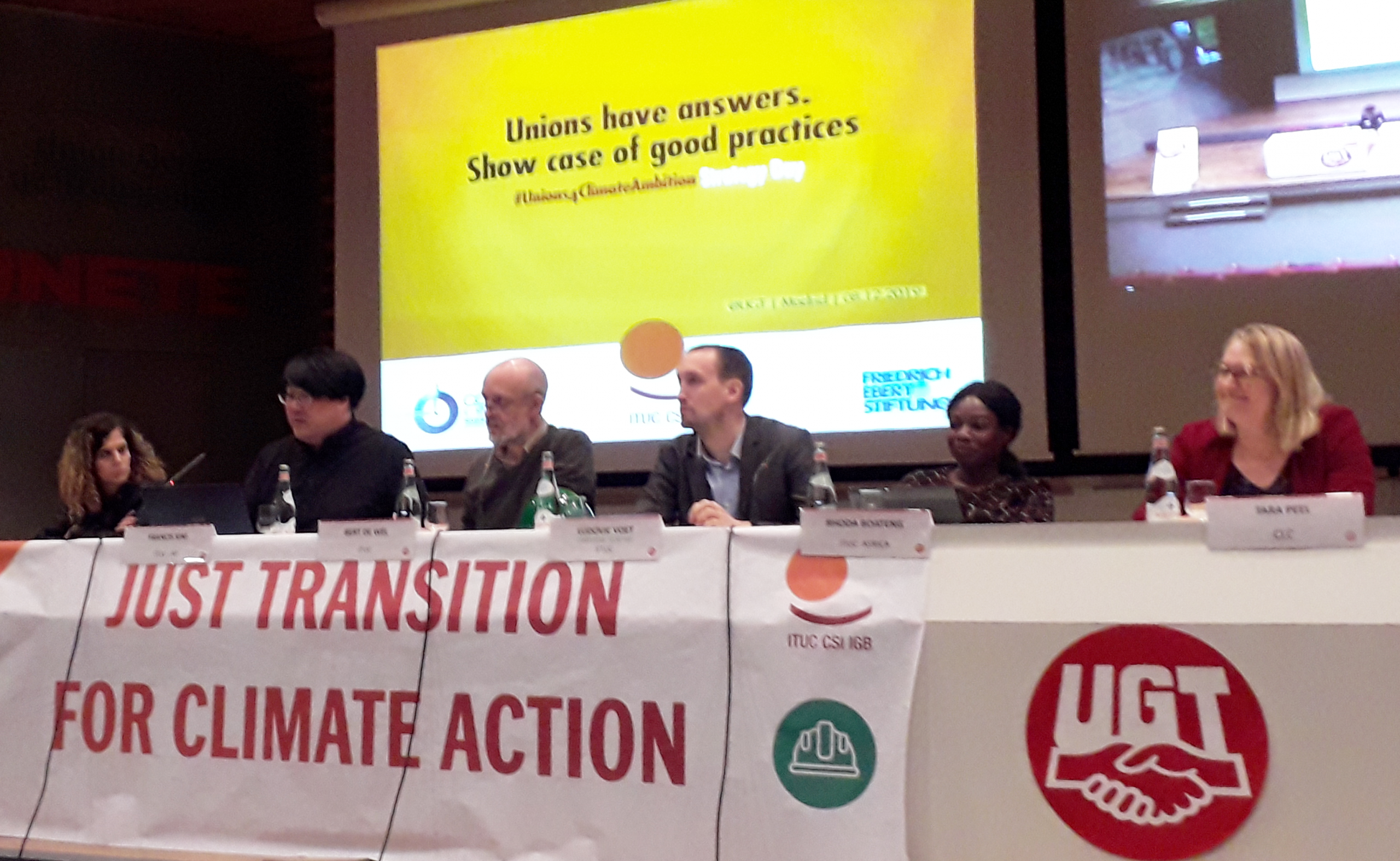
Planning for Glasgow – The UK pavilion hosted a series of events. These included sessions on the UK Climate Change Risk Assessment and the launch of a new publication ‘Accelerating the low carbon transition’. This at least made a reference to union engagement, something that the current UK Industrial Strategy and the UK Clean Growth Strategy fail to do. The task now is to make sure that this is turned in to a policy commitment. With the UK hosting the 2020 COP there is an opportunity to press for mechanisms to be put in place. That’s why an immediate follow-up to this event must be early interventions co-ordinated with the TUC and the Scottish TUC to ensure unions are involved in the planning process.
Unions like the UCU will have a massive role to play in pressing for a skills agenda that matches the opportunities presented by a zero-carbon economy. The GJA will also be contributing to the initiatives needed at workplace, regional and national levels to make Glasgow a focus for mass mobilisation in November 2020.
Day 9/12/19
The Labour Party and the Green New Deal – now we need to get serious about a Just Transition
Tuesday, September 24th saw a massive commitment by the Labour Party on moving to a net zero carbon economy.
Two motions were passed.
The Guardian: Labour set to commit to net zero emissions by 2030
The debate at conference underlined the importance of putting a just transition at the front and centre of the Green New Deal. It is the only way of addressing the understandable concerns of sections of the trade union movement This is what Rebecca Long Bailey said about it “But I think getting there as quickly as we can, by 2030, provided – and I made this point to the room and this is reflected in the motion that we got which is great – provided that we’ve got a credible plan to back it up and provided that social justice is at its very heart to protect workers and ensure there’s a just transition.”
The composite motion says.
In collaboration with the trade unions and the scientific community, work towards a path to net zero carbon emissions by 2030, guaranteeing an increase in good unionised jobs in the UK, and the cost of which would be borne by the wealthiest not the majority; and implementing this target into law IF it achieves a just-transition for workers.
This is crucial to keep support in industrial areas. Remember what happened to the miners, the printers, the dockers when market driven technological change destroyed their jobs and the state used its power to enforce the destruction of their communities and their unions. This will not be like that. The state will be investing £500 billion over ten years to more new jobs than we lose and reskill workers in high carbon sectors to take them on
That is a commitment to a process involving the workers most directly affected. It will be carried out WITH them and not done TO them.
Retraining and skills will be a crucial part of this transition. That’s why the GJA launched the new, free, online course on Just Transition this month.
It is also why we support the ‘Climate Emergency: Education for the Future conference’ on October 12th. Registration here.
Greener Jobs Alliance launches a new course on Just Transition
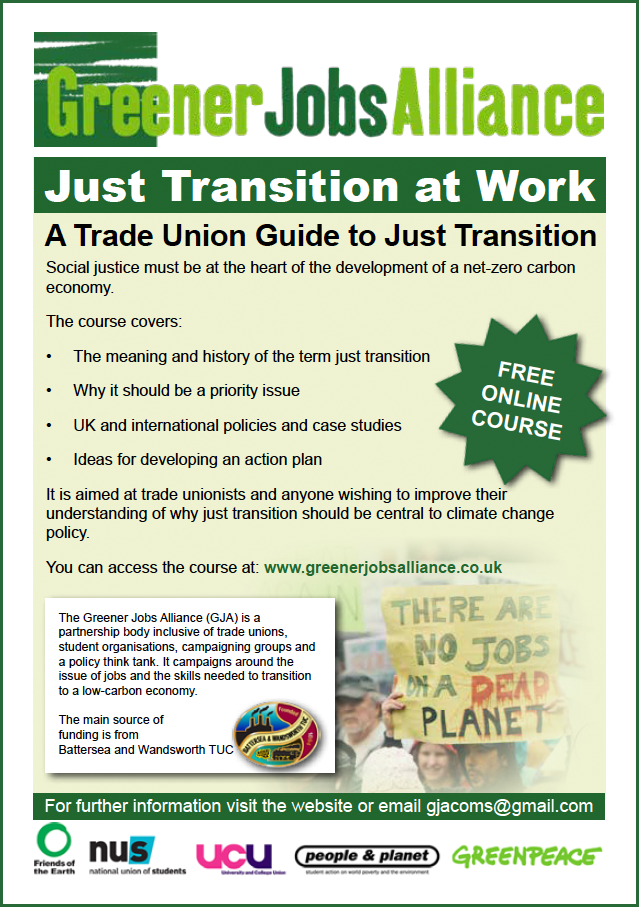 The GJA is committed to providing trade unions and supporters with resources to raise awareness on climate change. We have already produced 2 successful courses on Air Pollution, and Climate Change Awareness. Now in the lead-up to UN Climate Week in September we have designed a course intended to promote a better understanding of the term ‘just transition’.
The GJA is committed to providing trade unions and supporters with resources to raise awareness on climate change. We have already produced 2 successful courses on Air Pollution, and Climate Change Awareness. Now in the lead-up to UN Climate Week in September we have designed a course intended to promote a better understanding of the term ‘just transition’.
With unions joining other organisations in declaring a climate emergency it has never been more important for their members and officials to seek to implement this social justice principle. The course contains case studies of union action from workplace, regional, national and international level.
A flier for the course can be found here which contains further details. It could be used to support any planned activities in support of the solidarity actions on September 20th
The course is available free of charge here.
As always we encourage feedback on how you have used the materials and what you think of them.
‘The NEU fully endorses this excellent new resource.Just Transition is a concept with which all citizens, and especially trade unionists, need to become familiar as we are facing an unprecedented global emergency. This guide achieves this purpose in a concise way, without assuming previous knowledge. We wholeheartedly recommend its use as both a training resource and general guide.’
Kevin Courtney, Joint General Secretary of the National Education Union
The course will be officially launched at the TUC Conference on Monday 9 September 2019. Details here.
TUC Conference Fringe Meeting
‘Dad’s Army’ or Labour’sGreen Industrial Revolution?
 Monday 9 September, 2019 – 5.45pm – 6.45pm, Room 4, Brighton Centre
Monday 9 September, 2019 – 5.45pm – 6.45pm, Room 4, Brighton Centre
The government’s efforts to tackle the climate crisis are ‘like a Dad’s Army operation,’ says its independent advisers.
This fringe meeting will debate Labour’s Green Industrial Revolution, with plans for high quality, unionised jobs and productive zero carbon industries across the UK. Unions and the TUC now demand a Just Transition, putting jobs, skills and ‘union voice’ at the heart of these plans. Meanwhile, as air quality deteriorates, driven by fossil fuel emissions, unions are organising at work on the health risks and to build an alternative zero carbon economy.
The Greener Jobs Alliance will launch our new, free online Just Transition training module.Our aim is to help unions boost workplace organisation and awareness to tackle the climate crisis.
Speakers:
Chair: Graham Petersen – Greener Jobs Alliance/Trade Union Clean Air Network
Danielle Rowley MP – Shadow Climate Justiceand Green Jobs Minister
Bill Adams – Regional Secretary, TUC
Aaron Kiely – Friends of the Earth
Zamzam Ibrahim – NUS President
UCU – (speaker tbc)
*Refreshments provided
Air Pollution and Climate Change –
Why a twin track approach is needed
The hazards of air pollution and climate change are interlinked. Dealing with one should contribute to progress on the other. However, without recognising this link there is a risk of opting for incremental solutions that fail to address the urgency of both.
A recent report from the World Health Organisation states that tackling climate change would save at least a million lives a year. Equally cutting the burning of fossil fuels not only slows global warming but slashes air pollution. The WHO indicate that ambient (outside) and indoor pollution were responsible for 7 million premature deaths in 2016. They also point out that the economic benefits of improved health are more than double the cost of cutting emissions, and even higher in India and China.
There is a myth that fossil fuels are cheap, but this is only because we don’t include the cost of them to our health and economy. The IMF estimates these subsidies to the fossil fuel industry to be $5 trillion a year. This is more than all governments currently spend on healthcare. The Treasury objections to the cost to the UK of moving to zero carbon by 2050 don’t stack up. Even so nothing less than a complete restructuring of the economy will be able to deliver this.
As the European Academies Science and Research Council says “The economic benefits of action to address the current and prospective health effects of climate change are likely to be substantial,”
It is crucial that trades unions start prioritising both these issues. The month of June gives us a great opportunity to do this
Air pollution action
 June 20th is National Clean Air Day and the Trade Union Clean Air Network (TUCAN) will be launching a new ‘Air Pollution Guide for Union Reps. Copies of the guide can be downloaded from the Greener Jobs Alliance website here.
June 20th is National Clean Air Day and the Trade Union Clean Air Network (TUCAN) will be launching a new ‘Air Pollution Guide for Union Reps. Copies of the guide can be downloaded from the Greener Jobs Alliance website here.
TUCAN is supported by 13 national unions and we will be campaigning around the Charter that calls for air pollution to be clearly recognised as an occupational health emergency. https://www.greenerjobsalliance.co.uk/wp-content/uploads/2019/04/GJA-TU-Clean-Air-CharterEMAIL.pdf
Safety reps are urged to raise the issue of air pollution with their employer and conduct the audit checklist in the guide. The British Safety Council is also supporting the day and has joined the ‘Air We Share’ campaign which has conducted a workplace monitoring study. https://www.airweshare.co.uk/
This has case studies showing a site engineer at a construction site had exposure levels 6 times higher than an office worker. Getting to work of course contains risks with the deeper lines on the tube being 10 times more polluted than overground lines.
Of course, office and other indoor workers are not safe. A recent court case illustrates these hazards https://www.safetysolutions.net.au/content/business/news/uk-floor-layer-killed-by-toxic-fumes-companies-fined-1440633307
Climate change action
 June 26th is the ITUC day of action and unions are urged to raise the issue of climate change with their employer. The ITUC has produced guidance on how to try and ‘climate proof’ jobs and reduce emissions in the workplace. Every employer should be asked how they are going to meet the targets under climate legislation. https://www.ituc-csi.org/cpow?lang=en
June 26th is the ITUC day of action and unions are urged to raise the issue of climate change with their employer. The ITUC has produced guidance on how to try and ‘climate proof’ jobs and reduce emissions in the workplace. Every employer should be asked how they are going to meet the targets under climate legislation. https://www.ituc-csi.org/cpow?lang=en
Some examples of this are contained in the Carbon Trust guidance on science-based targets.
https://www.carbontrust.com/client-services/advice/strategy/
This will be an important stepping stone in the preparation for the mass actions planned in September. This will coincide with the United Nations Climate Week and students have called on workers to take action in solidarity with the strike action they are planning
https://ukscn.org/blog/union-open-letter
Action now will get the ball rolling for the big push expected in the autumn. Climate strikes are being supported by some unions on September 27th. This will also be the week of the next big student strike and the UN climate talks in New York. Exciting times and unions need to get on board.
Fears Scots workers will miss out on a £2 billion windfarm contract risking 1,000 jobs
Trade unions, GMB and Unite, supported by the Scottish TUC, have launched a joint campaign to force EDF Renewables, part of French owned nuclear giant EDF, to make good on promises that the Neart na Goaithe (NnG) contracts the fabrication of offshore wind turbines to BiFab yards in Methil and Burnt Island.
STUC said it understood that little of the work fabricating jackets for wind turbines would come to Fife and that it feared that contracts would be gifted to countries as far afield as Indonesia.
Gary Smith, Scottish Secretary of GMB said “Fife is ‘ready for renewal’ and NnG is the opportunity we need. We have the yards, we have the skills and we have the communities ready to play their part in tackling the climate emergency”
Mary Church, Head of Campaigns, Friends of the Earth Scotland said “the new clean economy must be created in a way that ensures the benefits and costs are shared fairly, both internationally and here in Scotland”
https://www.facebook.com/pg/ReadyForRenewal/posts/
This comes on the back of the devastating news about the insolvency announcement at British Steel. The thousands of jobs at risk will compromise the UK’s ability to deliver growth across the renewable and transport sectors.
This report will change your life…
The UK must end its contribution to global warming with a new target of net zero emissions by 2050, the independent Committee on Climate Change (CCC) told the government on 2 May https://www.theccc.org.uk/wp-content/uploads/2019/05/Net-Zero-The-UKs-contribution-to-stopping-global-warming.pdf. And for the first time ever in an official report, the government is told to deliver a Just Transition for workers and their communities.
The 2050 target date for zero emissions will disappoint many demonstrating across the UK. But the committee’s call for a Just Transition across many sectors of the economy looks very much like a new industrial strategy for a Zero Carbon Britain. It should now reinforce this message by setting up a Just Transition Advisory Group, with union representation from the industrial, energy, public and voluntary sectors.
On Mayday evening, before the CCC’s report was published, thousands gathered in Parliament Square as MPs debated Labour’s Climate Emergency declaration. Speaking from the top of the FBU’s own fire engine, Matt Wrack, General Secretary of the Fire Brigades Union, said firefighters the world over were on the frontline, fighting the fire and flood impacts of climate change. Both Caroline Lucas MP and Aaron Kiely from FoE (a member of the GJA steering group) called for a Just Transition for workers in a Zero Carbon Britain.
The new report doesn’t set the 2025 date for Zero Carbon Britain that Extinction Rebellion demands https://rebellion.earth/act-now/events/news/. But one government adviser said, ‘Make no mistake, this report will change your life.’ Transformations will spread across all sections of society, from the way we work and what we produce, to how we power our homes, travel to work, what we eat and how we farm.
A ‘net-zero’ target meets the UK’s commitment under the Paris Agreement – the pact which the UK and the rest of the world signed in 2015 to curb dramatically the polluting gases that cause climate change. It’s just that many now argue the target date is too far off.
Calls for a Just Transition
And perhaps for the first time ever in an official report, the government is told to deliver a Just Transition for workers and their communities:
- the Government should ensure that the overall transition is perceived as fair, and that vulnerable workers and consumers are protected. That means Treasury support. It must include analysis at the regional level and for specific industrial sectors. Scotland has already appointed an independent Just Transition Commission. The UK government should do the same.
A whole section of the report at last acknowledges what we have been saying for years: ‘There is potential for more jobs in some areas, and a decline in jobs in others. Employment needs may change in terms of location and skills.’ Maybe a fifth of all jobs in regions like Yorkshire and the Humber are affected, with their reliance on heavy industry and fossil fuels.
So here in the pages of this report, are the outlines of a new industrial strategy for a Zero Carbon Britain:
- Up to one in five jobs across the UK will be affected by a Zero Carbon Britain strategy.
- Major moves away from fossil fuels – with job losses across oil and gas extraction, power and heating industries, as well as job losses in supply chains for these sectors.
- Some gas fired power stations could be needed, but they will need to run using hydrogen or Carbon Capture & Storage. All coal-fired stations close.
- Huge job growth is expected in sectors like renewables, electric vehicles, home insulation and domestic heating.
- Employment in offshore wind, for example, is predicted to quadruple to 27,000 jobs by 2030. The big prize comes when all three main parts of a wind turbine – the tower, the cell at the top and the blades – are made in the UK. The UK is currently a big importer of renewable technology. The UK has to develop full supply chains across the renewable energy sector.
- By 2025 at the latest all new cars and vans should be electric, or use a low- carbon alternative such as hydrogen. The automotive industry must transition to electric vehicles, with major implications for jobs, skills and investment.
- No new homes should be connected to the gas grid after 20205.
- Retrofitting homes with energy efficiency measures and installing low-carbon heat into new and existing homes will require new skills. This programme could generate many more high-skilled jobs in the installation and construction industries.
The Committee warns that a just transition is essential:
If the impact of the move to net-zero emissions on employment and cost of living is not addressed and managed, and if those most affected are not engaged in the debate, there is a significant risk that there will be resistance to change, which could lead the transition to stall.
If the committee intends to heed this warning, it should set up a Just Transition Advisory Group, with union representation from across the labour movements’ industrial, energy, public services and voluntary sectors. The Committee already has three expert advisory groups on technology, international affairs and cost-benefits. The CCC has acknowledged a TUC input to the study. However, the absence of a strategic advisory role for unions in the work of the committee is no longer tenable.
The Committee on Climate Change report is available here.
Unions rising to the air pollution challenge
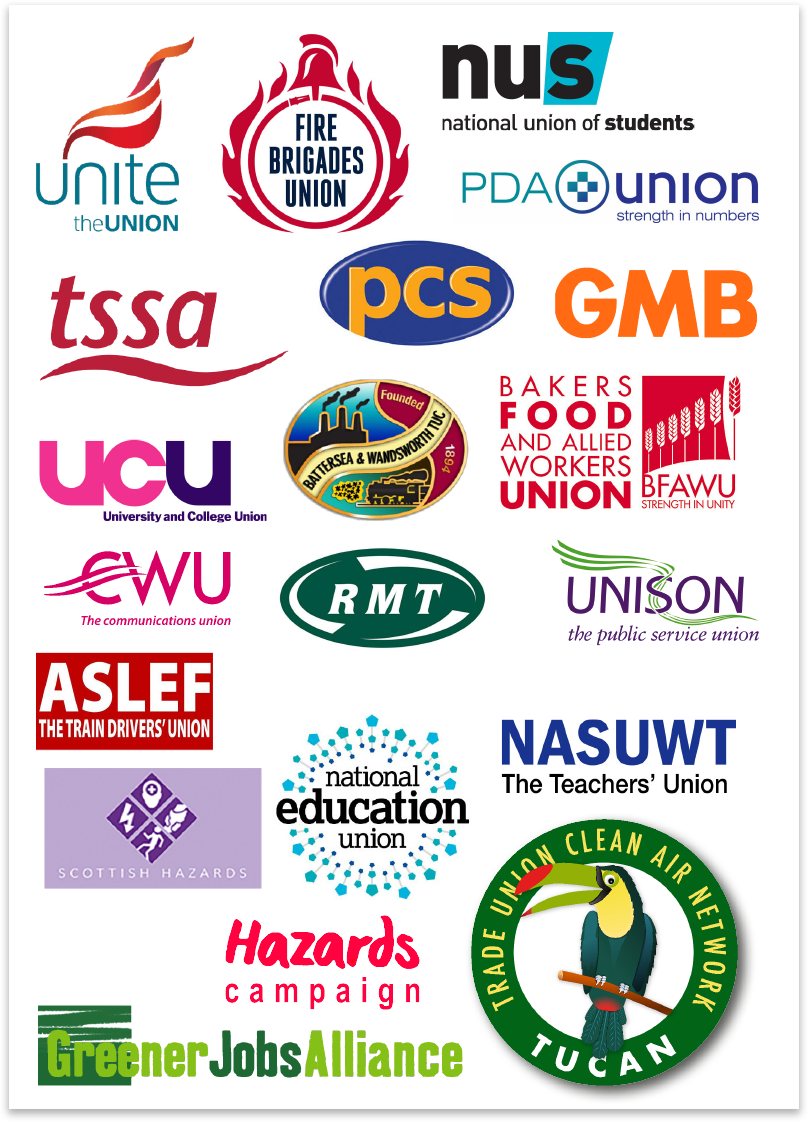 The GJAis pleased to report that 13 national trades unions representing the bulk of TUC membership have signed up to the Trade Union Clean Air Network (TUCAN) Charter.
The GJAis pleased to report that 13 national trades unions representing the bulk of TUC membership have signed up to the Trade Union Clean Air Network (TUCAN) Charter.
The GJA will be promoting the charter at union conferences around the country. We will also be co-ordinating a range of initiatives aimed at highlighting workplace exposure. Unions at local level, are also challenging the lack of effective action in local communities as this press release from Battersea and Wandsworth TUC illustrates.
Union fury as £2.8 billion wind turbine contract goes overseas
The GMB and Unite are scandalised that the bulk of a £2.8 Billion Offshore Wind contract has gone to manufacturers in Belgium, Spain and the United Arab Emirates. The decision leaves BiFab construction yards in Fife ‘empt- handed.’ Burntisland Fabrications (BiFab http://www.bifab.co.uk) has two plants in Fife and one in the WesternIsles.
BiFab trade unions GMB and Unite are calling on the First Minister and the Scottish Parliament to intervene. GMB Scotland Secretary, Gary Smith and Unite Scotland Secretary Pat Rafferty said: “Ten years ago we were promised a ‘Saudi Arabia of Renewables’ but today we need political intervention to help level the playing field in Scottish offshore renewables manufacturing.
‘The truth is that state-funded European energy and engineering firms, backed by Far East finance and Middle East sovereign wealth funds, are carving-up thousands of jobs and billions of pounds from our renewables sector, and firms like BiFab are left fighting for scraps off our own table.
That one hundred per cent of the manufacturing of the turbine jackets for Moray East and five platforms for Kincardine will be done in yards outside of Scotland is an absolute scandal. This cannot continue unchallenged.’
No way to a Just transition
‘To working-class communities in Burntisland and Methil there’s no ‘just transition’ or ‘green jobs revolution’ here, just a future that looks heavily rigged against their hopes for employment and prosperity. That’s the real cost of long-term political failure at all levels of government.’
Unions say that despite the best efforts of BiFab’s Canadian owners DF Barnes, the firm cannot realistically compete for major contracts on the basis of cost against European and international competitors who are heavily backed by state subsidies and sovereign wealth funds.
Union are demanding an inquiry to identify the barriers which have prevented Scottish based firms from capitalising on a renewable manufacturing bonanza. Yet, on the day of this decision, the UK Government also launch a New Offshore Wind Sector Dealwww.offshorewind.biz/2019/03/06/uk-offshore-wind-sector-deal-out-thursday/ with aspirations of tripling employment in the sector.
- The new Sector Deal set targets of reaching offshore wind capacity of 30GW and delivering one-third of the UK’s electricity by 2030. Through a new skills package for offshore wind employees, the new deal will aim to increase the number of jobs in the industry to 27,000 by 2030, up from 7,200 today.
Elsewhere, BiFab’s Arnish yard, Isle of Lewis, was back to work yesterday as the first steel was cut on a £26.5 million offshore piles contract. DF Barnes said its first contract win since it acquired the Fife-based fabricator would add 82 jobs to the BiFab operation.
But as to the big prize of the multi-billion-contract, the GMB and Unite say the empty yards in Fife are a sobering reminder of long-term political failure at both Holyrood and Westminster. ‘The Scottish Government and the public have a stake in BiFab and with it our renewables manufacturing future. We owe it to our communities to tackle the spaghetti bowl of vested interest groups that are dominating our renewables sector and to fight for Scotland’s share.’
 Air Pollution – all in a day’s work?
Air Pollution – all in a day’s work?
On Wednesday 6 February 2019, the Trade Union Clean Air Network (TUCAN)¹ was launched. The event took place at the Head Office of the International Transport Workers (ITF) in London. It was attended by a wide range of trades unions and supporting organisations including Client Earth, British Lung Foundation and the London Sustainability Exchange. The meeting discussed the Trade Union Clean Air Network Charter that has been drawn up to promote a trade union voice on this public health emergency.
In the same week UNICEF launched a Healthy Air for every Child Report³ that criticised the UK Government policy for being ‘insufficiently ambitious and won’t protect children’s health.’ Graham Petersen, GJA Secretary, commented “There has rightly been a public outcry about this but very little has been said about workers as a vulnerable group. The fact is there are huge numbers of people who are exposed to dangerous levels of pollutants as a result of work. Indoor and outdoor pollution affects people at work and travelling to and from workand yet this is rarely reflected in national and local strategies”
The Charter calls for new legal protections and occupational standards to give greater protection to workers. TUCAN will be organising events and training sessions to press the case for recognising this occupational health emergency.
Date: 8/2/19
Enquiries: Graham Petersen: email: gjacoms@gmail.com Mobile: 07879 492339.
¹ TUCAN founding partners are the Greener Jobs Alliance, Hazards Campaign, University and College Union and the National Education Union.
² The Charter is in the process of being finalised but the original document can be accessed here.
³ The UNICEF report can be accessed here https://www.unicef.org.uk/publications/healthy-air-for-every-child/
Setting our priorities for 2019 – Report of the GJA AGM
Over 30 people attended our AGM on Tuesday, January 29th, 2019. A wide range of trades unions and environment groups were represented. The meeting combined looking back over the successes of 2018 and planning our activities for the year ahead.
The work plan that was agreed identified 2 main priorities.
- Just Transition and climate justice across economic policy
- Air pollution and occupational health
Just Transition: The GJA will continue to press for the adoption of the principles of just transition and climate justice across economic policy. Despite our limited resources – the GJA has no paid staff – we have been able to intervene at international, national and regional level. It is crucial that industrial strategies put workers interests at the heart of policy. A massive effort will be required to ensure that policy makers and employers no longer ignore this. To promote this objective we committed to engage with UK energy unions to support efforts to strengthen the union voice. We will also continue and expand our work with all unions including the TUC. One way to achieve this will be embedding the innovative training programme for union reps piloted with the TUC Yorks and Humber Region.
Air pollution: The GJA in all the discussions around air quality has consistently pointed out the failure of politicians and other commentators to address the risks to workers. It has led us to form the Trade Union Clean Air Network (TUCAN) with the Hazards Campaign and the UCU. A Trade Union Charter has been drafted and we will be using this to raise the union profile during 2019 and continue to roll out our air quality training programme.
Climate justice and industrial strategy
In the ‘open’ section of the meeting we had a presentation from David Powell, Head of Environment and Green Transition, at the New Economics Foundation. David had kindly stepped in because of the unavailability of Chi Onwurah, Shadow Industrial Strategy Minister, due to the BREXIT debate. David highlighted the ‘Green New Deal’ movement. The challenge of the length of the working week and identifying examples of best practice on just transition were key components of this.
Sampson Low, Head of Policy at UNISON, outlined 6 key issues for his union. These were the role of public services, particularly for climate change adaptation; Just Transition for energy workers; development of Hydrogen as a low carbon fuel; public ownership of the Big 6 companies; fuel poverty and energy efficiency; and local government ethical investment strategies.
In the discussion that followed speakers stressed the importance of all unions prioritising climate justice and industrial strategy. The GJA pledged to support this by producing training materials and supporting conference planning with like-minded organisations.
The meeting acknowledged the financial support through the year of Battersea and Wandsworth TUC. We also put on record our thanks to members of the Steering Group who have guided our work during the year. Particular thanks were offered to Rachel Drayson from the NUS who has chaired our meetings but has now stepped down. We are pleased that the role of Chair has been taken up by Quinn Runkle from the NUS.
Poland climate conference ‘lacked urgency and ambition’
For the 100 trade union delegates departing the UN’s climate conference in Poland (December 3-14), the widely supported Solidarity and Just Transition Silesia Declaration was the one standout achievement in an otherwise frustrating two weeks of powerbroking that ‘closed with a deal that still lacked the ambition to tackle the climate crisis.’
Governments agreed the draft of Rulebook to deliver the promises in the 2015 Paris Agreement. But there’s no escaping the scientific evidence that neither those promises nor the rules so far drafted will safely avoid global overheating. The ITUC said https://www.ituc-csi.org/cop24-closes-with-deal-but-not the deal ‘lacks the urgency and ambition required.’
Keeping the Earth’s temperature rise to 1.5 degrees C would need ‘unprecedented changes’ in every aspect of society, the UN’s panel of climate scientists warned https://www.ipcc.ch/site/assets/uploads/sites/2/2018/07/SR15_SPM_High_Res.pdfonly last October. In Poland, government’s failed to unite behind that warning, blocked by the US, Australia, Russia, Brazil and Saudi Arabia.
Driven into the arms of climate deniers
Here’s why a Just Transition strategy matters and should inform every national climate plan. The Polish government deliberately chose the city of Katowice to host the UN conference. Katowice lies in the heartland of Poland’s coal mining region, Silesia, where over 80,000 work in mines and coal power stations, and where the taste of sulphur hangs on the air.
Across Poland, the unplanned closure of mines, power stations and heavy industry has cost over 300,000 jobs. The lack of a planned transition away from fossil fuels with matching new investment in jobs and skills and consultations with unions and communities, is having exactly the results the ITUC fears: with whole communities left behind, and where in one instance, the Silesian Region of Solidarnosc has signed a joint declaration resisting ‘climate alarmism’ with US-based Heartland Institute. https://www.heartland.org/news-opinion/news/press-release-solidarity-heartland-institute-sign-historic-climate-communique-at-cop24 Heartland is the well-funded climate denial movement cited in Naomi Klein’s This Changes Everything https://www.theguardian.com/books/2015/aug/27/naomi-klein-on-climate-change-i-thought-it-best-to-write-about-my-own-raw-terror.
Summary of the UN’s climate talks in Poland:
-
For unions, the most positive outcome was the Solidarity and Just Transition Silesia Declaration supporting our work on climate action at national level.
-
Countries agreed a Rulebook implementing the 2015 Paris agreement into practice. The rulebook covers a wide range of issues such as how countries should report their greenhouse gas emission reductions and who should pay what to help developing countries leapfrog fossil fuels and develop sustainably.
-
Campaigners https://www.desmog.co.uk/2018/12/17/cop24-paris-agreement-rulebook-does-not-deliver-what-world-needs have accused the rulebook of being a compromise favouring corporate interests and countries which have been the most obstructive in the negotiation process.
-
A number of nations https://eciu.net/blog/2018/cop24-saudi-arabia-takes-off-its-trousers, including the EU, Argentina, Mexico and Canada, said they would increase the scale of the emission cuts they’ve so far pledged to their fellow countries. That nations do this is essential if the ’emissions gap’ – the yawning divide between countries’ collective emission-cutting promises and that needed to deliver the Paris Agreement targets – is to be closed.
-
Countries failed to agree on how they will increase their commitments to cut carbon emissions. The IPCC warns that we are headed towards 2 degrees of warming and more: ‘With no or limited overshoot of 1.5°C, global net CO2 emissions need to decline by 45% by 2030, reaching net zero around 2050.
-
The IPCC’s findings suggest that as things stand the world has little more than a decade to bring emissions under control and halve them, which would help to stabilise the climate.
Desmog’s insider reporting
Campaigners Desmog provide a full report on the conference, including the UK Energy Minister Claire Perry’s controversial Side Event.
For the Desmog reporter, ‘the most powerful moment of the talks was when Elsa Velichkova, the mayor of the coal town of Bobov Dol in south-west Bulgaria, told a room packed of suited-up delegates that the unplanned closure of coal plants had spread desperation through her town. In an emotional plea for help, she warned that if this energy transition is going to be successful, those communities at the forefront of our energy system need to be fully supported so that no-one is left behind:https://www.desmog.co.uk
Global carbon emissions forecast to rise and rise…
Source: https://www.earth-syst-sci-data.net/10/2141/2018/
‘Global heating’ – the evidence
‘Global heating’ is now a more accurate term than ‘global warming’ to describe the changes taking place to the world’s climate, according to a leading scientist at the Met Office.
In October 2018, the Intergovernmental Panel on Climate Change (IPCC), the global body of the world’s leading climate scientists, warned the UN that:
- ‘Climate-related risks to health, livelihoods, food security, water supply, human security, and economic growth are projected to increase with global warming of 1.5°C and increase further with 2°C.’
- Keeping the Earth’s temperature rise to 1.5 degrees C would need “unprecedented changes” in every aspect of society, the UN’s panel of climate scientists warned only last October.
- ‘Far-reaching transitions’ are required in energy supply, land use, transport infrastructure, buildings insulation and industrial processes.
- Government promises will overload the planet with up to 58 billion tonnes of carbon emissions by 2030, the IPCC says.
https://www.ipcc.ch/site/assets/uploads/sites/2/2018/07/SR15_SPM_High_Res.pdf
Public ownership and control of energy and energy policy needed
When Green Doesn’t Grow, a TUED briefing for unions at the Poland conference, argued that, ‘A constant stream of headlines and reports have confirmed that governments are not on track to meet their climate commitments.’
‘The market-focused approach to climate protection has failed spectacularly. Using ‘sticks and carrots’ policies aimed at the private sector, governments anticipated a surge of new ‘green growth’ investment that would create millions of good jobs. This did not happen. Climate policy must shift in a radically different direction, and unions can help ensure that such a shift occurs as soon as possible.
Growing numbers of unions are already calling for a decisive shift away from policies that push privatisation—including predatory ‘public private partnerships.’.
TUED says that unions are increasingly rallying behind the idea of a needs-based approach to climate protection grounded in extending public ownership of energy and its democratic control.
When “Green” Doesn’t “Grow”: Facing Up to the Failures of Profit-Driven Climate Policy:
http://unionsforenergydemocracy.org/resources/when-green-doesnt-grow/
Steeps cuts in CO2 emissions needed in next 10 years: IPCC
Four unions seek transition talks with BEIS
The UK’s four largest unions, Prospect, GMB http://www.gmb.org.uk/newsroom/energy-jobs-plan Unison and Unite, called for the government to deliver a ‘just transition’ for their 200,000 energy sector workers as the UK moves to a greener economy. The unions said the four key elements to ‘A Just Transition’ include a balanced low carbon energy mix, investment in skills and infrastructure, protecting and creating high-quality jobs and employment, and ‘No community left behind.’
Philip Pearson, GJA
‘Just Transition is really about our survival’
 Governments here at the UN in Poland are now negotiating a ‘1.5 degree Rule Book’ on how governments will deliver their promised cuts in carbon emissions to hold global warming below 1.5 degrees. The Rule Book includes both their targets to cut emissions and the rules of governments’ engagement with their people, or should be:
Governments here at the UN in Poland are now negotiating a ‘1.5 degree Rule Book’ on how governments will deliver their promised cuts in carbon emissions to hold global warming below 1.5 degrees. The Rule Book includes both their targets to cut emissions and the rules of governments’ engagement with their people, or should be:
Our key questions to the UN tabled here today include:
- Will the Rule Book give unions a place at the table as governments work on their national low carbon plans?
- Will the basic principles of just transition and decent work be central to their decarbonisation plans?
- Will there be explicit references to the need to respect Human Rights impacts of climate change, in this the 70th anniversary of the UN Declaration on Human Rights? To take some examples, the right to food, water, decent work, labour and trade union rights and the right of nationhood, as whole societies such as the Small Island States face being overwhelmed by rising seas.
- Are governments more broadly obliged to consult with all key stakeholders? The eight other ‘civil society’ groups defined as stakeholders to the Paris Agreement on climate change include women, indigenous peoples, environment, young people business and other interests.
The draft Rule Book is available here:
https://unfccc.int/sites/
We will also link you to the final text when it’s available.
Meanwhile, Para 7.d. Of the current somewhat unreadable draft gives you an idea of the consultation process we may be faced with:
A government should ‘’prepare its nationally determined contribution, and implementation plan including, as appropriate:
d. Planning processes:
a. Domestic institutional arrangements, such as the roles of, and the cooperation between, government agencies and other entities involved;
b. Public participation and engagement, including with women, non-Party stakeholders, local communities and indigenous peoples;
c. How the nationally determined contribution relates to the long-term low greenhouse gas emission development strategy referred to in Article 4, paragraph 19, of the Paris Agreement.
d. Sustainable development and poverty eradication, as well as any other contextual issues, such as those contained in the preamble of the Paris Agreement.
So a New Year’s resolution for the GJA is to translate the final Rule Book into plain English!
But you’ll notice the absence of explicit references to trade unions, just transition and decent work. Item (d) above refers to the Preamble to the Paris Agreement: that’s where the obligations to take account of just transition and human rights can be found, principles that are meant to guide everything the UN and governments do in tackling climate change.
But whatever the Rule Book comes out with, as the ITUC’s Sharan Burrow said today, ‘We have to take the demands for just transition and decent work back home and get talking to our governments. Without a just transition we don’t see how we can seriously expect to halt global warming. Yes, we want to land these principles inside the Rule Book, too. And the absence of a Human Rights perspective is deeply worrying.’
The last word in this blog goes to Daniel Urai, President of the Fiji TUC, speaking today at an ITUC event:
‘Climate change is slowly swallowing our islands, seas are rotting our farmlands, we have to relocate whole villages, move them inland. Just Transition is really about our survival. We are truly a living example of the ITUC saying that there are no jobs on a dead planet, when whole islands are eroded and whole peoples are forced to move. We see shores disappearing where once our children played.’
Philip Pearson
‘Just Transition’ now centre stage
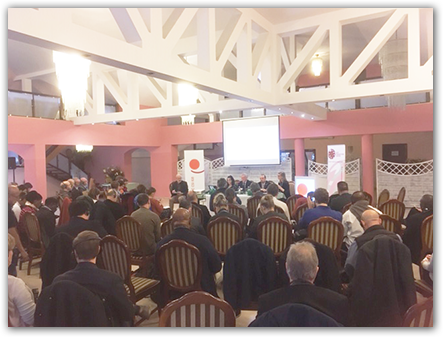 Led by the Polish Presidency, the United Nations adopted the Just Transition Declaration https://cop24.gov.pl/fileadmin
Led by the Polish Presidency, the United Nations adopted the Just Transition Declaration https://cop24.gov.pl/fileadmin
Significantly, international bodies representing employers and local government have swung their weight behind the UN Just Transition Declaration.
A business guest speaker at the ITUC strategy day (8 December), Peter Glynn from the International Chamber of Commerce (ICC), said his organisation supported the declaration thttps://cdn.iccwbo.org/conten
Delegates pointed out that the right to organise and collective bargaining were essential to a fair and Just Transition, and asked Glynn to take these messages back to the ICC.
The local governments’ statement on Just Transition is available here: https://documentcloud.adobe.co
Unions speak out
In other contributions: French trade unions lamented the relocation of cement factories to Turkey, to escape paying the 20 euros per tonne price of carbon within the EU. ‘How can we reverse this idiotic situation’, where unions support climate policies but lose jobs. Stronger EU action was needed to impose a carbon border tariff.
An ITF transport delegate reported on city wide carbon neutral plans for public transport in Oslo and Vancouver. Zimbabwe unions were working on green jobs and skills strategies. In Nigeria, Unions were demanding remedial action for the devastation of the Niger delta by oil companies, and were working on a national transition strategy. In Europe, the ETUC had welcomed a 4.8 billion Euro fund to support regional investment plans and support for workers and communities affected.
This conference is based in the heart of Silesia’ coal mining region, with scores of coal mines and coal power stations. Speaking for Polish union KADRA, Gregorz Trevino said that for a decade unions had worked with the government to support the ‘victims of structural change’ – the 350,000 miners, metal industry and power station workers whose jobs had disappeared. Fuel poverty was also a major issue as energy costs have risen. It was crucial to attract manufacturing jobs into the region. And a programme to insulate 4.5million cold homes in the region would mean a huge job creation programme.
In the UK, we reported back on the shop stewards environmental course piloted in Leeds, led by the GJA’s Graham Petersen (see report in Newsletter 18). Support for shop stewards is seen as a key part of the TUC’s regional low carbon plans led by unions in Yorkshire.
UK. Chris Scwartz from the Canadian Postal Workers union warned that employers may be tempted to take advantage of industrial change to cut wages and conditions. This issue should be included in union training g programmes.
Unions were building alliances for a wide range of purposes, according to reports from our sister organisation such as ‘Green Jobs BC’ in Canada, and the ‘Green & Decent Jobs Coalition’ in The Netherlands. In both cases unions and green NGOs mutually supported their respective labour and environmental demands.
From today’s strategy session, you could say there is a great range of union campaigns: strong alliances are being created with environmental organisations. But much remains to be done to focus union capacity on ‘green bargaining’ in the workplace, with union reps trained up to take on employers, and members made well aware of the massive challenge of securing a Just Transition.
And secondly, energy policy: a recent TUED reports shttp://unionsforenergydemocra
Philip Pearson, GJA
TIME TO GET SERIOUS ABOUTCLIMATE CHANGE
GJA Annual General Meeting
Tuesday, 29 January 2019 from 1.00 – 2.30pm
UCU Head Office,
Carlow St,
London NW1 7LH
(nearest tube Mornington Crescent)
Registration is required: Please confirm yourattendance by email to: gjacoms@gmail.com
Greener Jobs Alliance Briefing:
‘Full spectrum’ of unions support motions on climate change, energy
and a Just Transition
 GJA Press Release 27 July 2018
GJA Press Release 27 July 2018
TheGreener Jobs Alliance is pleased to announce that the Green Party has adopted the statement on a ‘Just Transition in the UK’.
Future Tooting
HAVE YOUR SAY ON ENERGY & AIR QUALITY
21 April 2.00pm – 5.00pm
Tooting United Reform Church
2 Rookstone Road
SW17 9NQ
Enquiries: furzedownlowcarbonzone@gmail.com

Joint Statement on Just Transition
‘It’s time for a Just Transition in the UK, moving to a modern low carbon economy in such a way as to protect workers’ livelihoods, create new industries and deliver a fairer society in all regions and devolved nations. The need for action to support the UN’s Sustainable Development Goals and Paris Climate Change Agreement to keep global temperature rises to 1.5 degrees, is urgent if we are to avert the environmental and economic costs of climate change.’
Click here for the full document.
Happy 2018 to all our supporters!
GJA will be kicking off the New Year with our AGM on January 15th. This will include a debate with Gordon Marsden, the Labour Party Shadow Skills Minister. The failure of national and regional bodies to get to grips with skills, industrial strategy and union engagement is ever more apparent. We will be pushing hard to make this a key part of interventions at all levels of government.
The regional air pollution training for union and community activists continues with courses in:
Leeds – January 26th
London – February 9th
Here’s to a Greener 2018!
Government’s Air Pollution plans face another legal challenge
The GJA welcomes the decision by Client Earth this week to take the Government back to court for the 3rd time over its failure to respond effectively to this public health emergency. https://www.clientearth.org/clientearth-launches-new-air-pollution-legal-action/
Unions need to add their voice to the call for action. The legal action was launched just after the release of yet more reports showing that pollution is at unlawful levels in most local authorities in the UK. The GJA calls for employers to take responsibility for the pollution generated by their business activities. There should be a legal duty contained in a new Clean Air Act making it a requirement on large employers to measure the emissions they are responsible for and draw up a clean air plan for their operations. This then needs effective enforcement. For example, construction companies are already under an obligation to show they are controlling pollution yet the lack of enforcement, often caused by staffing cuts, means illegal levels of particulate matter are contaminating workplaces and neighbourhoods alike.
The National Education Union NEU) has taken a lead by producing guidance this week in conjunction with the British Lung Foundation. https://neu.org.uk/advice-and-resources/publications/neu-blf-air-pollution-health-advice-school Unions can also put pressure on their local authorities to do more. For example this week Battersea and Wandsworth TUC issued a press release calling on the council to honour its policy commitment of ‘campaigning to national government towards a non-diesel economy’. This has been backed up by a huge citizen science campaign across the borough highlighting the illegal levels of pollution in Wandsworth.
Finally, the GJA is running a series of ‘Air Pollution as a trade union issue’ workshops across the regions. The first will be held in Manchester on Friday 1 December and the second one will be in Leeds on Tuesday 26 January, 2018 (contact gjacoms@gmail.com for details)
Unions demand action now at Bonn climate talks
With concentrations of greenhouse gases at their highest level for 800,000 years, global trade unions are calling on governments arriving in Bonn for this year’s climate negotiations ‘to deliver concrete emission-reduction initiatives before 2020.’
The International Trade Union Confederation’s (ITUC) Top Line Demandshttps://www.ituc-csi.org/ituc-frontlines-briefing-climate-19266 call on governments to:
- Raise Ambition and Realise the Job Potential of Climate Action: COP 23 must deliver concrete emission-reduction initiatives before 2020. Governments must increase national contributions through the 2018 “facilitating dialogue,” which is designed to lay the ground for five-year review cycles.
- Deliver on Climate Finance and Support the Most Vulnerable: COP 23 must deliver certainty on how climate finance commitments will be achieved. Current contributions to mobilise $100 billion annually by 2020 should be the starting point for post-2020 finance.
- Commit to Securing a Just Transition for Workers and Their Communities: The Paris Agreement took a first step in securing the commitment to a Just Transition for workers to a zero-carbon economy. But this conference (COP23) must consolidate it by governments incorporating Just Transition measures into their Nationally Determined Contributions, and recommend future work on this issue.
Here’s how the ITUC wants to ensure momentum for a Just Transition is matched with political action.
- Incorporate Just Transition commitments into government’s so-called Nationally-Determined Contributions (NDCs). Governments must explain how they have assessed the employment impacts of their decisions, and most important, the measures they will take to support workers. Some governments, such as South Africa, have already incorporated this in their first NDC.
- Maintain Just Transition for workers as a permanent theme within the UN’s forum on Response Measures (dealing with the impact of official policies to shift from fossil fuels) set up in the Paris Agreement. Focus on sharing good practice would contribute to ‘educating climate negotiators on these issues and build a bridge to progress happening on the ground.’
- Launch a “Katowice initiative for a Just Transition” under the COP, providing a high-level political space to maintain the commitment to Just Transition. With COP 24 (2018) to be organised in Katowice, the main city of Polish coal mining, with thousands of miners’ jobs at risk, the ITUC says ‘the next UN conference should honour the commitment to protect these communities from the impacts of change, gather experiences from parties in supporting workers in the transition, and encourage investments aimed at cresting sustainable jobs.’
Just Transition: UK round up
Last week, Graham Petersen from the GJA joined a group of 15 trades unionists from around the world in Brussels. The workshop had been convened by the ITUC to draw up plans for education materials on a Just Transition and Organising in the workplace. Graham did a presentation on Workplace Environment Reps in the UK. He drew attention to the resource materials on the GJA site designed to raise awareness. A full report will appear in the November newsletter.
In October 2107, unions in Yorkshire, led by the regional TUC, convened a joint working group with industry, local enterprise agencies and community groups to launch a low carbon transition plan. Yorkshire has the UK’s highest concentrations of energy intensive industries and fossil fuel plants.
Meanwhile, in Scotland, Friends of the Earth and a range of trade unions supported calls this year for a Just Transition. The Scottish government responded by committing to set up a ‘Just Transition Commission http://www.gov.scot/Resource/0052/00524214.pdf to advise Scottish Ministers on adjusting to a more resource-efficient and sustainable economic model in a fair way which will help to tackle inequality and poverty, and promote a fair and inclusive jobs market.
CO2 at 800,00-year high
Concentrations of carbon dioxide in the atmosphere surged at a record-breaking speed in 2016 to the highest level in 800 000 years, according to the World Meteorological Organization’s Greenhouse Gas Bulletin. https://public.wmo.int/en/resources/library/wmo-greenhouse-gas-bulletin
The abrupt changes in the atmosphere witnessed in the past 70 years are without precedent. The last time there was this much carbon dioxide (CO2) in the Earth’s atmosphere, modern humans didn’t exist. https://public.wmo.int/en/resources/library/wmo-greenhouse-gas-bulletin
Megatoothed sharks prowled the oceans, the world’s seas were up to 100 feet higher than they are today, and the global average surface temperature was up to 11°F warmer than it is now.
Globally averaged concentrations of CO2 reached 403.3 parts per million in 2016, up from 400.00 ppm in 2015 because of a combination of human activities and a strong El Niño event. Concentrations of CO2 are now 145% of pre-industrial (before 1750) levels, according to the Greenhouse Gas Bulletin.
Rapidly increasing atmospheric levels of CO2 and other greenhouse gases have the potential to initiate unprecedented changes in climate systems, leading to “severe ecological and economic disruptions,” said the report.
TUC Congress 2017: is TUC out of step with Labour’s green missions?
If delegates to this year’s TUC Congress in Brighton back a new motion on climate change, they will help bring the TUC’s 2017 Campaign Plan much closer to the Labour Party’s vision http://www.labour.org.uk/page/-/Images/manifesto-2017/Labour%20Manifesto%202017.pdf
of a green industrial and energy policy. As it stands, the TUC Campaign Plan 2017–18 makes no mention of climate change, energy policy, energy democracy, carbon emissions or the Paris Agreement!
In contrast, Labour’s manifesto says ‘We will reclaim Britain’s leading role in tackling climate change… The first mission set by a Labour government will be to ensure that 60 per cent of the UK’s energy comes from zero-carbon or renewable sources by 2030.’
The Bakers, Food and Allied Workers Union (BFAWU) climate change motion (Motion 10), https://www.tuc.org.uk/sites/default/files/Final_Agenda.pdf
to be debated on Tuesday 12 September, calls on the TUC to:
- Work with the Labour Party for an end to the UK’s rigged energy system to bring it back into public ownership and democratic control.
- Back a mass programme of retrofit and insulation of Britain’s homes and public buildings.
- Lobby to demand rights for workplace environmental reps.
- Demand a Just Transition strategy and practical steps needed to achieve it as integral to industrial strategy.
The motion will be boosted by a CWU amendment that, if adopted, calls for a cross-sector industrial strategy that works towards delivering internationally agreed carbon emission reduction targets. The CWU wants to see a “just transition” programme for those workers affected by the industrial changes necessary to develop a more environmentally sustainable future for all.
These demands will surely redirect the focus of the TUC’s industrial and energy policy.
Consider where climate breakdown has led us this summer. Hurricane Harvey flattened Houston.
Seasonal monsoon rains have swept north western India, Nepal and Bangladesh this year. The UN OCHA are reporting that 41 million have been affected by the floods, with over 900 killed https://www.campaigncc.org/blog. Super Hurricane Irma is heading towards Florida as we write, having wrecked much of the Caribbean.
There’s much to welcome in the TUC Campaign Plan 2017–18. It attacks the political upheaval of the past year when living standards have continued to fall. It derides the harmful impact that unconstrained globalisation and years of deregulation, austerity and underinvestment have had on poorer and middle-income communities. It calls for an “economy that works for working people – now, and into the future… We need companies interested in long-term greener growth that benefits everybody, not short-term shareholder returns.
The TUC calls for ‘an industrial strategy that delivers sustainable jobs with decent pay, in all parts of the country.’
But it seems oddly out of touch with the awful realities impacting the globe. It’s strangely silent on the UK’s national and global commitments to tackle our climate breakdown. Where is the desire to boost renewable energy, realise deep cuts in carbon emissions, and a belief in the UK’s international leadership on the Paris Agreement. And without this stuff, What does the TUC mean by ‘sustainable’ jobs?
https://www.tuc.org.uk/sites/default/files/TUC-campaign-plan-2017-18.pdf
We think that the BFAWU motion will get the TUC back on course for an industrial and energy policy much closer to Labour’s vision, one that genuinely addresses the tough issues of a just transition. And in so doing, further isolates the Tory Party and its bonfire of green energy and low carbon industrial policies.
http://www.labour.org.uk/page/-/Images/manifesto-2017/Labour%20Manifesto%202017.pdf
Time to get angry about air pollution
The Greener Jobs Alliance gives a response to the Government Air Pollution Plan published in July 2017 and identifies how union and community activists can respond.
No one can say that the Government hasn’t been given a chance to get this right. We’ve had 3 court cases since 2011 all pointing out that the UK is in breach of its legal duty. In May 2017 a consultation document where the overwhelming response was that more needs to be done. Finally, on July 26th, we got the publication of ‘The UK plan for tackling roadside nitrogen dioxide emissions’.
Not surprisingly the ‘plan’ has been panned for failing to tackle this public health emergency. By not adequately addressing what should be done now, rather than in 23 years time, the Government has condemned thousands of people to a premature death. Advocating a ban on petrol and diesel vehicles by 2040 is all well and good, but we needed a clear framework for the urgent implementation of clean air zones before 2020. Other shortcomings are highlighted in articles published following the launch of the report.
http://energydesk.greenpeace.org/2017/07/27/five-things-need-know-goves-air-pollution-plan/
We agree with Client Earth’s James Thornton’s observation that “it is little more than a shabby rewrite of the previous draft plans and is underwhelming and lacking in urgency. Having promised to make air quality a top priority, Michael Gove appears to have fallen at the first hurdle.”
What happened to the ‘polluter pays principle’?
The Greener Jobs Alliance called for specific duties to be placed on businesses. In our submission to the consultation, we pointed out that ‘There should be a legal duty on large businesses to carry out an emissions assessment. For example, a single employer may be responsible for generating thousands of vehicle movements every day by their staff and suppliers. They need to provide evidence that they have a transport policy in place to bring their emissions down within clear time limits’. It is part of a system that fails to make oil, gas and coal companies face up to the wider social costs inflicted by their products. In fact, they end up getting massive subsidies. For example, earlier this year files were leaked showing £4.9 billion provided to fossil fuel firms in export finance by the government since 2010. http://www.independent.co.uk/environment/fossil-fuel-firms-billion-pound-uk-state-subsidies-oil-gas-firms-leak-climate-change-environment-a7690966.html
Far from setting out any obligations on employers, the Government plan advocates the exact opposite. We are told in Para 47 that ‘The UK government is clear that any action to improve air quality must not be done at the expense of local businesses’. So much for the principle of the polluter pays. Most air pollution is generated by work-related activities and yet the individual and the state pick up the bill. The need for a focus on employer’s responsibilities makes it even more important that trades unions start to get serious about air pollution. This is a workplace issue and must be treated as such.
Mandatory Clean Air Zones needed
Defra’s own evidence makes it clear that charge zones are the most effective way to tackle pollution. Yet local authorities don’t have to produce plans until December 2018. Implementation could take much longer and cash strapped councils will find it hard to comply. A campaign is needed urgently to turn CAZs that charge or ban dirty vehicles from a last resort to a first resort measure. They must be coordinated and funded by central government. This is a national public health crisis and requires a national response. Who should pay for this? Large businesses that fail to show effective measures for reducing their distribution/supply and travel emissions.
What should trade unions do?
Currently, the UCU is the only union with national policy on tackling air pollution. Every union needs to draw up plans for involving their safety reps in making this an occupational health priority. Indoor and outdoor pollution are often linked. Toxic air kills whether a worker is exposed inside or outside a building. It is also an area that lends itself to cross union engagement through trades union councils linking up at a city and regional level with community activists. Unions also need to get involved in consultations over the introduction and implementation of Clean Air Zones. In addition to London, there are 28 other local authorities in England that are required to take local action in ’the shortest possible time’. These are referenced on Page 31 of the report. Unions need to check this list and prioritise how they will respond.
Resources to raise awareness
Help is at hand. In June, 2017 the GJA launched an on line course aimed at trade union and community activists.
https://www.greenerjobsalliance.co.uk/?page_id=31
It has had a positive feedback and endorsement – see below.
‘UCU is deeply concerned about the impact of poor air quality on people’s health, and we fully support the call for a Clean Air Act to tackle the air pollution health emergency in the UK. We’re also encouraging branches to raise awareness about the harmful impact of air pollution, using the helpful online resources from the Greener Jobs Alliance launched at UCU’s annual congress earlier this year.’
Sally Hunt, UCU General Secretary
“Thousands of students are studying, working, and living in areas with high levels of air pollution. They need to know the extent of the risk and what can be done about it. The Greener Jobs Alliance has just launched a set of on line modules to help answer those questions. NUS is a GJA supporter and we encourage students to check the web site to find out more.”
Robbie Young, NUS Vice President Society and Citizenship
In our August newsletter, we will be providing information about training opportunities for union and community activists
Air Quality Action Day
June 15th has been designated as Air Quality Action Day. It coincides with the end of the Government Consultation period on their proposals for complying with EU Regulations. If you remember they tried to block publication due to the calling of an election. However, the court judgement went against them and they ended up producing a document that completely failed to address the scale of the problem. Mind you post-election one wonders with the climate change deniers of the DUP and Michael Gove as Environment Secretary in charge whether we would have got something even worse.
The GJA has responded to the consultation and you can read our views here.
Finally, if you need resources for Air Quality Action Day look no further than our new online course launched a couple of weeks ago. Click here.
Reasons to be fearful – 1, 2, 3
In the final days before the election the GJA is sending out a stark warning for climate change and the environment about the consequences of a Conservative victory. Their manifesto ‘’Forward Together’ makes some startling claims, as well as failing to address the key challenges facing the UK. https://www.conservatives.com/manifesto
This has now been compounded on the international stage with the pathetic response to Trump’s decision on the Paris Agreement
- Global leader? – The Tories state in their manifesto that ‘We will continue to lead international action against climate change’ (p.38). What attempts are made to justify this claim? This leadership role is apparently demonstrated by the UK ratification of the Paris Agreement! (p.40). In fact, we were one of the last of the countries to ratify. Hardly leadership. Another bizarre claim is trying to take credit for the introduction of the Climate Change Act. The Act was introduced by a Labour Government in 2008. In a desperate attempt to get some reflected glory we are told that the Conservatives ‘helped to frame it’ (p.40)
- Defending the Paris Agreement – Now that Donald Trump has withdrawn from the Agreement how has May shown her leadership? A phone call from the prime minister supposedly expressing ‘our disappointment’. Real leadership would have been to sign the protest letter making it clear that the agreement cannot be re-negotiated and condemning the decision. Theresa May’s subservience to the US has led to a failure to provide strong leadership yet again.
- UK domestic policy -Air Quality is the biggest public and occupational health risk and is covered in one sentence (p.25). ‘Action’ is promised with no indication what that will be. If their proposals in the consultation paper released just before the manifesto are anything to go by then we know it will be very limited. A new Clean Air Act as proposed by the Green Party and Labour Party is not included as an option even though a clear national direction is essential. Energy policy is framed in a strange assertion that it ‘should be focused on outcomes rather than the means by which we reach our objectives. So, after we have left the European Union, we will form our energy policy based not on the way energy is generated but on the ends we desire – reliable and affordable energy, seizing the industrial opportunity that new technology presents and meeting our global commitments on climate change’ (p.23). The manifesto then contradicts itself by focusing on fracking as a way of generating energy even though the reality suggests that it will not be consistent with any of the 3 ends identified.
Air quality and climate change finally surfaced as an election issue at the leaders debate on May 31st. Between now and June 8th we must keep exposing both the Government record and their ‘vision’. We need a strong and stable environment and we’re not going to get that from the Tories.
BWTUC slam Government’s new Clean Air Strategy for not removing dangerous pollutants from the Wandsworth air, leaving people to get ill or die prematurely
The Government’s Air Quality Action Plan is so flawed it is no wonder they wanted to bury this until after the election says BWTUC
Battersea and Wandsworth Trades Union Council (BWTUC) slammed the Government newly published plans to improve air quality as being totally ineffective and that they will utterly fail to remove dangerous pollutants from the air in Wandsworth.
The Government were forced to produce an Air Quality plan for consultation by the courts this month.¹ They had tried to use the election as a reason to delay publication but this was rejected by the Court.
Graham Petersen, spokesperson for BWTUC, said,
“If this document represents their vision of how the public will be protected from air pollution it is no surprise they wanted to keep it under wraps.
If this is how you respond to the Number 0ne public health hazard then the Conservative Party have lost all credibility on this important issue. Instead of providing clear leadership from central government, control measures have largely been delegated to local authorities. This wouldn’t be so bad if it wasn’t the same government that have stripped local government finances to the bone. A public health emergency that claims the lives of around 40,000 people every year requires a clear national direction.”
People in Wandsworth are in the front-line of toxic air. We have the most polluted street in Europe – Putney High St. Levels in some parts of the borough show over 2 twice the legal limit of 40ug/m³ for nitrogen dioxide. ² In April, the Wandsworth Guardian quoted a report that showed 29 schools in the borough located in areas exceeding the safe legal limit. Wandsworth Council’s own Air Quality Action Plan identified the importance of a campaign ‘to national government towards a non-diesel economy’ as a priority action. If they are serious about this then the Council should join us in condemning these inadequate proposals.
BWTUC believes that new statutory duties are required under a Clean Air Act that provides a national plan covering low emission zones, clean energy public transport provision, and duties on manufacturers and employers.
Currently businesses pay a fraction of what it costs the NHS to treat victims of toxic air. Yet it is employers that are the root cause of diesel emissions from their transport fleet as well as the individual work journeys to and from work made by their staff.
That is why BWTUC believe that air quality is a workplace issue. It is also why we provide funding for awareness raising initiatives like the Greener Jobs Alliance training modules on Air Quality which will be launched at the end of the month.³
It is clearly now a political issue in this election. The Government have shown they have no effective strategy. This is not strong leadership, it is passing the buck, and relying on a voluntary approach that will not deliver on the scale required.
End
Contact details: Graham Petersen email: grahampetersen4@hotmail.com / Tel 07879492339
Notes to editors
¹ ‘Improving air quality in the UK: tackling nitrogen dioxide in our towns and cities’. May 2017. Consultation closes June 15th, 2017. BWTUC will be responding to this consultation. https://consult.defra.gov.uk/airquality/air-quality-plan-for-tackling-nitrogen-dioxide/supporting_documents/Draft%20Revised%20AQ%20Plan.pdf
² Nitrogen Dioxide levels exceed the legal limits in large parts of Wandsworth according to data from Kings College London. REF BWTUC press release https://www.greenerjobsalliance.co.uk/?page_id=642
³ The Greener Jobs Alliance is funded by BWTUC and provides regular updates on air pollution and other environmental issues. On May 27th it will be launching, here on this website, a new set of Air Quality training modules at the University and College Union Annual Congress in Brighton.
The GJA Steering Group meeting on May 3rd drew up these demands for political parties to address in the lead-up to the election on June 8th. We think that action on climate change should be central to party manifestos. We hope that GJA supporters can use it when having discussions about the kind of economy and society we want to live in. Good luck with your campaign work and as always any feedback on these demands is very welcome.
Top 10 Election Demands
- Keep the Climate Change Act 2008. Stick to the UK’s legally binding commitments to cut harmful greenhouse gas emissions by 80% by 2050 as a minimum. Ensure that UK energy and industrial policy is effectively aligned with the Committee on Climate Change projections and carbon budgets.
- Trust the people with a massive boost to energy democracy. Support a new wave of community based solar and onshore wind projects with ambitious feed-in tariffs wherever there is local support Lift the ban on onshore wind projects. Support for local authorities to set up municipal energy supply companies.
- Ban fracking and respect local democracy wherever fracking applications are opposed by local communities.
- Cut energy bills and carbon emissions with a nationwide home insulation programme. ‘Retrofit’ poorly insulated homes and build new, low energy social housing, using as far as possible direct labour, and supported by high quality vocational education and training. Make ‘Energy efficiency’ a national infrastructure priority to create decent jobs, reduce fuel poverty and reduce fuel bills
- Make education for sustainable development a core priority across the education system. Prioritise research funding that will promote the implementation of the United Nations’ Sustainable Development Goals.
- Create a million skilled climate jobs: invest in all forms of renewable energy, low carbon jobs and skills, including electric vehicle manufacture, rail investment, and build a full supply chain to make and supply renewable energy technologies in the UK.
- Create a new Green Investment Bank in public ownership and with full accountability. Use the green bank to support Regional Development Board investment in green energy and transport infrastructure projects.
- Create a National Climate Service to oversee the transition to a low carbon economy This to include a. Ministry for Climate Jobs, Skills and Social Protection’ to equip the UK to a transformation of the world of work working across all Government departments and industrial sectors.
- Introduce an Environment Protection Act to incorporate vital European directives into UK law. Commit the UK to retain membership of the European Court of Justice to ensure that our citizens have the same environmental protection rights as all EU citizens, wherever environmental standards are at risk.
- Introduce a Clean Air Act to tackle air pollution once and for all. Place a clear legal responsibility on employers and businesses to address air quality and develop a network of low emission zones in pollution hot spots.
PDF version of the Top 10 Election Demands
Climate and the Election
Will Climate Change figure as an election issue? The planned speech quoted in the Independent recently highlights the Conservative’s vision of how the economy will be run. The alternative to Government policies on climate and environmental pollution can be a vote winner. Don’t let the ideology exposed in the quote below win the day.
Tim Hitchens, the director general of economic and consular affairs at the Foreign and Commonwealth Office (FCO), will say in a speech later this month that the UK must change its focus to carry out Prime Minister Theresa May’s vision of the country as a “great, global trading nation”.
“You have a crucial role to play in posts in implementing our new approach to prosperity against the huge changes stemming from last year’s Brexit vote,” the notes seen by The Sunday Times read.
“Trade and growth are now priorities for all posts – you will all need to prioritise developing capability in this area. Some economic security-related work like climate change and illegal wildlife trade will be scaled down.”
Air quality continues to grab the headlines
An article in The Times today (15.04.17) reveals new evidence that air pollution is becoming the number one public health issue. It reinforces the need to produce the GJA on-line course due for release next month. This will identify why this is a workplace issue as well as a community one.
Watch this space.BWTUC Press release
BWTUC LAUNCH WANDSWORTH AIR QUALITY CAMPAIGN AS POLLUTION LEVELS CONTINUE TO EXCEED LEGAL LIMITS IN THE BOROUGH
“Air pollution is a public health emergency and this is the time for action and clear commitments.” says Graham Petersen from Battersea and Wandsworth Trades Union Council.
BWTUC, the South West London arm of the national TUC, has agreed to launch a major campaign for clean air in Wandsworth as figures for Nitrogen Dioxide emissions in Putney shows that the annual average for 2016 is three times the legal limit of 40ug/m3.
BWTUC will seek to work with political and other civic bodies in the borough, to galvanise support for action by government and others to reduce emissions of pollution harmful to human health and restore clean air in all parts of the borough. In particular, BWTUC will work with affiliated trades unions to get action from employers to help cut emissions.
Graham Petersen, a Tooting resident and union activist heading up the campaign for BWTUC, said “in last week’s local Guardian newspaper, Council leaders claimed that Putney ‘pollution levels have actually fallen in recent years.’¹ “
BWTUC assessment of the statistics indicates that this statement fails to provide the full picture. There has been an improvement in pollution levels since 2011 but this appears to have stalled for some measurements. The figures from Kings College London for Nitrogen Dioxide show that the improvement has levelled out since 2014. For the last 3 years there has been no improvement in the mean average. The annual average for 2016 remained at over 3x the 40 ug/m3 limit.²The clean bus zone may finally start to make a difference this year but it needs to be rolled out rapidly to other parts of the borough.
Air quality is a major public health issue. We will support positive actions proposed by the Council but we will not hesitate to challenge the policies and actions when they fail to recognise the scale of the problem.
This applies to our approach towards the Greater London Authority and the Government. For example, it is our view that the Mayor’s proposed Ultra Low Emission Zone is very welcome but does not extend far enough. Large parts of the borough, like Tooting, that have serious air pollution would not be covered.
As for the Government, there has been a complete lack of leadership. ‘The Government’s failure to get to grips with the challenge of air pollution is evident to all of us’. This is an editorial statement from the Evening Standard (20/3/17) and one we would endorse.
Another group that needs to up its game is employers. Most of the toxic air we breathe is a product of work or workers travelling to work. Yet employers are often ignored when it comes to demands for action and should be doing far more to reduce their direct and indirect emissions.
BWTUC will support workers who want to act on pollution as a workplace issue. We are assisting local unions to carry out monitoring of pollution levels where they work. We will also be producing on line training modules to raise awareness this summer.
Contact details: Graham Petersen email: grahampetersen4@hotmail.com / Tel 07879492339
Notes to editors
¹ Statement in the Wandsworth Guardian (Page 4, 16/3/17).http://edition.pagesuite-professional.co.uk/html5/reader/production/default.aspx?pubname=&pubid=47c1cbbd-4d2d-409e-8458-8703ef40dcda
² Between 2013-16 the annual mean average remained constant at around 124ug/m3. http://www.londonair.org.uk/LondonAir/Data-Visualisations/objectiveVStime.aspx
In 2016 Putney High St had the dubious distinction of being the most polluted road in the whole of Europe. By law hourly levels of Nitrogen Dioxide must not exceed 200 micrograms per cubic metre more than 18 times in one year. In fact, the hourly limit was exceeded over 1,200 times in 2016. In January 2017 the standard was breached 11 times in one day.
29 March is Hackney Council’s Divestment D-Day
Divest Hackney https://en-gb.facebook.com/divesthackney/
is calling on Hackney Council’s Pension Fund committee to Decide to Divest 100% of its £42m in fossil fuel shares at its crunch meeting on 29 March at Hackney Town Hall. It’s peak campaign time for Divest Hackney, with a petition https://campaigns.gofossilfree.org/petitions/divest-hackney-council-from-fossil-fuels(please sign!), lobbying councillors in their advice surgeries and technical briefings on why selling all the fossil shares is the most prudent option, for the planet and the Council’s pensioners.
As things stand, Hackney Council’s Pensions Committee is proposing at its Town Hall meeting on 29 March to sell just half its £42m shareholding in the next six years – and then review the situation.
The 50% target has been set arbitrarily and does not coincide with the UN’s target to limit the increase in global warming to below 1.5 degrees or less. Such a target requires immediate and significant cuts in carbon emissions and polluting industries to avoid dangerous climate change.
Hackney Council’s Pension Fund investments in fossil shares
This is where the money goes…examples
Petrobas, the Financial Times reported a “scandal that is engulfing Brazil …corrupt Petrobas directors collaborated with Petrobras’ contractors, including some of Brazil’s largest construction companies, to line their own pockets.”
Glencore Xstrata, BBC Panorama said the company faced charges that its copper refinery in Katanga province, Congo, was dumping raw acid in a nearby river. In the face of determined community opposition, in the Philippines (see photo) the company is investing $5.9 billion the Tampakan copper and gold project in South Cotabato on the island of Mindanao.
EOG Resources, a major shale gas driller in the United States.
Marathon Oil, acquired several interests in the Alberta (Canada) oil sands projects in 2007.
Exxon Mobil, still funding Climate Science Denial groups.
Best returns vs the environment?
What the council calls a “radical move” to sell off half its polluting shares follows a review which claimed to look at the financial risks posed to the pension fund’s fossil fuel investments in light of the Paris Agreement. “The fund expects to move away from fossil fuel investment in the longer term….We have to ensure that the pension fund receives the best returns possible…” the council concludes.
The committee also says that it is putting money into greener investments, including £20m into a ‘Low Carbon Workplace’ fund, which transforms office buildings into energy efficient, low emission workplaces. Obviously, this is a welcome move. But any beneficial investment in ‘low carbon workplaces’ is going to be more than cancelled out by the council’s own high carbon investments.
Hackney Council can really do better than this.
Divestment victory at Kings College, London
STUDENT activists at King’s College London celebrated victory yesterday after the university announced that it would divest from all fossil fuel companies within the next five years.
An eight-week campaign by King’s College Climate Emergency (KCCE), which consisted of a number of direct actions culminating in a 14-day hunger strike by PhD student Roger Hallam and a 24-hour occupation of the university’s buildings, has prompted what has been hailed as “a significant change of policy” by one of Britain’s most prestigious universities.
The 7 point agreement is set out in a letter to staff from Chris Mottershead, Senior Vice President at KCL
Fundraising for the GJA update
What do the GJA and Glastonbury have in common?
Apart from a commitment to sustainability the GJA, is in fact, a product of Glastonbury. Back in 2010, the BWTUC met with Michael Eavis to discuss supporting a trade union focused alliance on climate change. The GJA arose out of that meeting. Funding from our Glastonbury work was used in 2011 and again in 2017 to continue this work. The GJA will be sending server teams to Glastonbury and Latitude music festivals in 2017 to raise more money to keep our work going. If you are interested in getting involved with our work at these festivals then please contact
Michael Eavis (2nd from right) with members of the GJA at Glastonbury, 2016



